Issues for 2020 American Voters
Summary
We have chosen eleven issues, among others, regarding a paradigm shift that should take place to establish good governance in America, and to help foster democracy abroad. Good governance of global society is deeply influenced by good leadership in Washington. The writing below explains the critical importance of these issues.
1. ‘We Need a Socially Responsible Economy, Not Predatory Capitalism’
2. ‘America’s Values Should Dictate Foreign Policies: A Win-Win World’
3. ‘A World Free from Rebellion & Radicalism: Democracy and Justice‘
4. ‘Authoritarian Governments: Agents of Elites‘
5. Power-Sharing: Key Failures in Afghanistan, Iraq, and Syria
6. ‘When Military Intervention is Imperative‘
7. ‘Diplomacy: The Best Defense Spending‘
8. ‘People to People Connections: Bridging the Gap with Immigrants’
9. ‘Strengthening and Supporting the United Nations‘
10. ‘The US is Invested in the Middle East – Whether it Likes it Or Not. So It Must Promote an Optimal Outcome‘
11. ‘Mainstream Media: A Global Problem’
The United States of America is an extraordinary nation. It was founded on the principle that all human beings are created equal. The nationhood is not defined by religion, language, culture, or any other criterion that separates one group of people from another. It is defined in universal terms, which enables our country to integrate diverse peoples, all with ‘inalienable rights’ endowed by their Creator. Our founders worked hard for eleven years to frame the nation’s constitution so that the government would remain a servant of the people and work ‘for the people.’ They wanted our country to uphold rights, to create equal opportunity, to maintain social justice, and above all to remain transparent and accountable to the people.
Abraham Lincoln would describe our government as “of the people, by the people, and for the people.” The rest of the world has taken influence from these timeless values and principles laid down in the American charter.
At the inception of this nation, these ideas were revolutionary. In order to establish a nation that provided equal opportunity and common welfare for all citizens, America first had to fight a war against the mightiest colonial power on earth. They had to free their country from the bondage and tyranny of elites.
But despite our initial victories, our ground reality remained far from the universal ideas the nation was founded on. A substantial segment of the society, including African Americans and women, remained disenfranchised. But our nation subsequently charted an even more trailblazing path of struggle, engaging in a bloody civil war in which more than 700,000 people sacrificed their lives to free African Americans.
Additional struggles helped to place this country as the vanguard of social change. Towards the end of the nineteenth century, the collective bargaining movement struggled to achieve workers’ rights and welfare for all, while the women’s liberation movement struggled to establish gender parity. The Civil Rights movement in the 20th century struggled to establish equal rights for all citizens, irrespective of any differences.
These difficult struggles during the last 240 years have made this nation resilient, self-critical, and self-correcting. These movements changed America’s sociopolitical landscape, and also helped to change the global culture. This is a paramount sign of the greatness of American society, rightfully called a microcosm of the world.
This was the America I fell in love with.
But since then, America has drifted apart from the country our founders had created. Today, the majority of Americans — irrespective of their own race, ethnicity, religious beliefs, or political affiliation — have lost trust and confidence in their government. The US government is no longer viewed as the servant of the people, but as a servant of special interests. It is long overdue that we fight back and reclaim our country, as did past generations facing similar crises.
The role of a leader is indispensable for the nation to make a correction. Presidents Woodrow Wilson [1912-1919] and Franklin D. Roosevelt [1932-43] not only helped to save our nation from challenges, but also helped to bring about a global order based on justice and the rule of law. The world is indebted to these visionary leaders. They helped to rid the world of colonial rule, as well as the ‘might is right’ policy that had led to wars of aggression for centuries. Today, we need leaders like them more than ever before. We must rescue America and the world from the existing crisis of extreme inequality and corruption in our dysfunctional democracies.
Human history is a testament to exploitation and aggression. From time immemorial, the rich and the powerful at the top of the ladder have exploited the rest of society. Elites set the rules for their own benefit, while the common people suffer enormously.
In a democracy, however, people hold the ultimate social power. They shouldn’t be exploited by elites. The American Republic previously held an unparalleled track record of human rights and justice. But this has now regressed. Oligarchy and plutocracy now dominate the sociopolitical scene. The people of this nation are deliberately and relentlessly misinformed by elites and the elite-controlled media. In order to obtain consent, these crimes are perpetrated under the pretext of ’America’s national interest.’
The roots of this decline began in the 1950s. The Cold War was a vulnerable time for America. Taking full advantage of global uncertainty, elites and warhawks took control of Washington. They destroyed burgeoning postcolonial democracies in many parts of the world, replacing them with puppet authoritarian regimes in the name of maintaining stability and America’s ‘national interests.’ This pretext was – and still is – a violation of the truth.
As the former secretary of state openly acknowledged before an Arab audience in 2005: “For sixty years,” she said, “my country, the United States, pursued stability at the expense of democracy in this region here in the Middle East – and we achieved neither….”
Iran’s democracy was destroyed in 1953 to serve Western oil industries. Guatemala’s democracy was destroyed so that the American-owned United Fruit Company could increase their profits. Lumumba of Congo and Allende of Chile were assassinated in CIA-orchestrated coups, all for similar reasons.
FDR warned the nation in 1936 that elite groups are ‘enemies of peace,’ as they participate in war profiteering and corporate malfeasance to the detriment of ordinary people around the world. The consequences of these costly and counterproductive policies haunt America today.
America lost the trust and goodwill it previously earned under leaders such as Wilson and FDR. These leaders’ vision and policies had even convinced iconic communists such as Ho Chi Minh to reach out to America. If we had responded in kind, conflicts such as the Vietnam War could have been entirely avoided and the Cold War would have been shortlived. Ultimately, the Cold War ended in 1989 due to America’s leadership, initiating dialogue and constructive talks between former arch-enemies. But the unfortunate fact is that this same goal could have been achieved decades earlier – saving hundreds of thousands of American lives, five million lives abroad, and trillions of dollars of American taxpayer money.
This is not to say that all military actions are avoidable. However, military engagements must be dictated under a broader agenda of justice and peace in order to be truly successful. Wilson during the First World War and FDR during the Second World War exemplified this point. As another example, short-term American military action in the Balkans in the 1990s – quickly followed by intensive diplomacy – demonstrates when and how military power needs to be exercised.
Power with wisdom is a blessing for mankind. Power with greed and arrogance is a threat.
Had America maintained its reputation through value-driven policies abroad, it could have achieved its global objectives at the fraction of the price. As a leading democratic nation, the United States could have stood in solidarity with dispossessed and disenfranchised peoples around the world. But America failed its mission to others. As a result, America lost its global leadership and the geopolitical capital it once gained.
The loss of trust from the global community is incalculable. Fierce resistance grew among countless people around the world against any American involvement. They saw that America had become an imperial power that needed to be confronted and checked. America’s defeat and disgrace was sealed in places like Vietnam.
Had American decision-makers reached out to the people instead of their puppet governments, they would have served America. If the people of a country are on the side of America, both nations win.
America’s elites often advocate for authoritarian regimes in many places in the world, in the name of stability. If the past is any reference, an authoritarian regime is not stable. In the absence of accountability to the people, it increasingly succumbs to corruption, cronyism, and abuses of power that lead to dysfunction and instability. American elites also benefit from an authoritarian system, because it is easy to take advantage of these systems through bribery and privileges. A puppet regime is a Trojan horse for its own people.
In contrast, a functioning democracy is a pillar of stability and continuity. It is based on the collective will of the people. If people of a foreign country are on the side of America, both nations win in the long run. This was foreseen by both Wilson and FDR.
Failures in Afghanistan and Iraq mainly occurred because people became cynical about America’s elite-driven policies in their countries. Fierce resistance grew among vital segments of the population against America’s agenda.
In particular, America failed its responsibility to its own people as well as others in the Middle East. Israel’s victory in 1967 was a watershed moment, as the country defeated its Arab neighbors under heavy pressure from elite groups, with full support from the American government. Their purported victory, however, was a moral defeat and it created a Frankenstein within. As a Jewish thinker warned Israel in 1953 in his famous book “What Price Israel,” Zionism taken too far would cause a tremendous disservice to Americans, Israeli Jews, and the Palestinian people. Since these events took place under the patronage of American elites, these issues need to be addressed and ameliorated by the American public. As Israeli journalist Gideon Levy and others believe, the rescue mission must be initiated in America.
The Vietnam War did not end in Vietnam. It ended on the streets of America. The epic injustice to the Palestinians must also end in American ballot boxes. This is a ‘sore spot’ of the world, ‘a stain on the conscience of humanity’ as one thinker described. This gross injustice is the root of many evils in our time. The failures in Afghanistan and Iraq are related to this issue. Countless people of the world are rising up against American policies, as America is now seen as complicit in crimes against humanity. Palestinians are but an extreme example. The Trump administration has put the final nail on the coffin of Middle East peace.
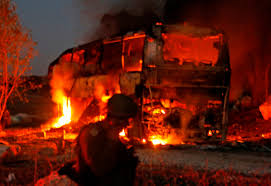


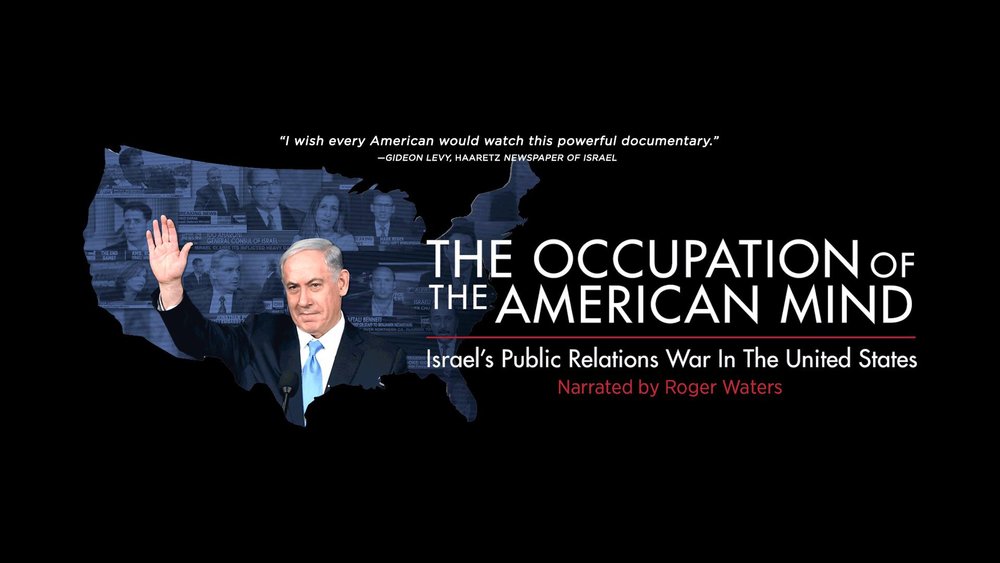


BEIRUT, LEBANON – SEPTEMBER 16: A European delegation marches to the Sabra Shatila refugee camp to commemorate the 20th Anniversary of the Sabra Shatila massacre September 16, 2002 Beirut Lebanon. Hundreds of Palestinians were killed in refugee camps by Lebanese Christian militias allied with Israel in 1982 during the Israeli invasion of Lebanon. Israeli Prime Minister Ariel Sharon, then Minister of Defense,was forced to resign from his post after an Israeli government inquiry. (Photo by Courtney Kealy/Getty Images) 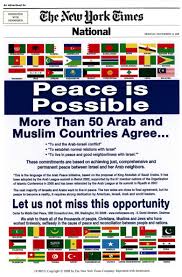
The commitment of an American president to freedom and democracy is electrifying to many people abroad, in particular among people in the Middle East.
History is a testament to the fact that people become optimistic when an American president promises a commitment to freedom and democracy abroad. The trust comes not from the leader per se but from the nation he or she represents – values of past struggles that achieved democratic milestones. Confidence in America’s leadership convinced people like Ho Chi Minh, an iconic communist leader, or President Sukarno of Indonesia, a leader of a non-aligned country, to work with America in spite of our differences. They recognized America’s trailblazing past.
This recognition is also the reason that over a million refugees in Pakistan returned home in Afghanistan after America invaded in 2001, hoping that they would regain a better future. A similar hope existed during the early post-invasion period in Iraq. All these great opportunities were squandered by elites and special interest groups.
In 1919 after the Ottoman Empire was dissolved, President Woodrow Wilson went against European powers and sent the King-Crane Commission to find out the wishes of the people of the region. The report of the Commission, after an extensive survey, exposed that the people of the Middle East were eager and ready for democracy. They did not want to live under the British Mandate.
Almost one hundred years later, when President Bush declared his commitment to fight against tyranny and oppression in his second inaugural speech in 2005, hopes and spirits skyrocketed among the people of the Middle East. In spite of huge resentment towards the Iraq invasion in 2003, Arab streets overwhelmed with optimism towards the commitments of an American president to freedom and self-rule.
The Bush administration initially was committed to this agenda. It convinced Egypt‘s leadership to legalize the Muslim Brotherhood and to let them participate in the next election. It persuaded Lebanon to allow Hezbollah to participate in upcoming elections. It compelled Israel to allow free and fair elections in the West Bank and Gaza, and to allow Hamas to participate. Hamas abandoned armed operations completely in order to participate in the democratic process America arranged to take place. This armed group has now never resorted to violence since 2004. This was a great achievement of the Bush administration.
Soon after, all the major polls found a dramatic shift in the mindset of the people in the Middle East. Gallup International found that an overwhelming majority considered democracy “the best form of government.” Per recent Pew research data, the majority of the Western public still thought democracy was “a Western way of doing things that would not work in most Muslim countries,” – thanks to exhaustive campaigns funded by special interest groups. But pluralities or majorities in every single Muslim country in that same survey flatly rejected that argument, vehemently demanding democracy in their own countries.
In Algeria, Tunisia, Egypt, Morocco, and even in Saudi Arabia, a wave of democratic fervor swept through the region. This posed unprecedented political challenges to the authoritarian regimes of those countries. At the time, civil activities in these countries changed from agendas of rebellion to constructive dialogue and cooperation with America. That is the impact of a reasonable voice from an American president in Muslim-majority countries. If an American administration is honest and sincere about their cause, Arabs have no problem following American leadership.
However, authoritarian regimes in the region – not to mention Israel as well as transnational elites – panicked at the prospect of a good relationship between America and Muslim-majority regions of the world. The Bush democracy agenda was a bold move undertaken by an American president without consulting the status-quo leaders in the region. Subsequently, these stakeholders came together to campaign against the Bush doctrine. Bush, not being a resolute and courageous leader, gave in. That was the end of the democracy campaign abroad, at the time. This is a clear sign of who runs America – definitely not the American public.
A democratic government can slowly become dysfunctional, if the citizens of the republic fail to become the vanguard of their system. Interestingly, Hitler came to power via a democratic process. By changing the rules, he became a monster. Hitler may be an extreme example, but many democracies have gone dysfunctional and authoritarian by changing the rules through which elites can take undue advantage.
Today, American democracy is dysfunctional, a republic on the verge of demise. Media is In the hands of a small number of elites, especially since the 1996 Telecommunication Act along with the proliferation of the entertainment and sports industries. America has regularly participated in crimes against humanity, but the American people will often know nothing about these crimes.
The documentary, “The Occupation of the American Mind” is but one example of this systematic ignorance. When citizens abdicate their rights and responsibilities to elite groups in society – whether intentional or unintentional – it places the nation in a downward spiral.
The price of liberty is eternal vigilance.
A few thousand years ago, one of the longest and most powerful republics in ancient Rome collapsed. Autocracy had taken over, and citizens had abdicated their responsibility to flashy authoritarian rulers. While these rulers assured convenience to citizens and talked in the language of rosy promises, they could not curb the empire’s rising inequality. This ultimately led to social upheaval.
The last few elections in America are eerily similar to these historical events. Top corporate leaders, military-industrial magnates, foreign lobbyists, and a whole entourage of unscrupulous politicians have colluded to rob people of rights and resources. The old story of evil overpowering good is playing out in this great land – and it will take down the oldest modern democracy if we don’t fight it off.
Edward R. Murrow, an American journalist, often said: “A nation of sheep will beget a government of wolves.”
In order to stop transnational elite groups, we need strong leadership from America. Leadership will be difficult to summon in oppressive societies such as Russia or China, where rampant violations prevail against human rights and the rule of law. These powers violate human rights abroad with no remorse.
An extraordinary responsibility rests on the shoulder of the American public today, if we want to prevent elite domination of national and global affairs.
Solutions to some of these issues are laid down in this document. These are my ideas and understandings gained through years of yearning, searching, and thinking. I am sharing my understanding with my fellow Americans. The actions and policies of the United States, good or unjust, will influence humanity in a profound way. Enormous possibilities for peace are ruined by a few careless and greedy elites.
End of Summary
Make Government Work “for the People” Again
Introduction
Every recent survey by Gallup, NPR, and others has revealed that the majority of Americans – irrespective of age, ethnicity, or political affiliation – have lost confidence in their government. 1 & 2
For a 240-year-old democracy such as the United States, this is a sign of alarm. The American government is no longer viewed as the servant of the people. It is instead regarded as an agent of elites and special interests.
From time immemorial, there has always been a war between elites and common people in society. The rich and powerful few try to take advantage of the vulnerability of the masses to exploit and rob them. Elite interests are best served by oligarchy and plutocracy. The rule of law of democracy stands in the way of elite interests. Therefore, elites try to derail an existing entrenched democracy, or in less disadvantageous places, to block or destroy a burgeoning democracy.
Alarmingly, there is no boundary for elites today. They have become transnational and immensely powerful. The outcome is extreme inequality and injustice pervading the world, including America.
The global community demands a rule of law based on equality, impartiality, and human rights. Today, that rule of law is subverted by money and power from a few people at the top. Two powerful confrontational forces fight for global dominance. One is the collective will of the common people, loud and clamoring on the streets. This is a very visible force. The other force is a master plan concocted by powerful, organized, and well-connected global elites. This pattern is largely invisible.
The concentration of power and wealth is so extreme that the common people have no idea how extreme that ‘extreme’ is. According to economist Thomas Piketty, the ‘extreme inequality’ that exists now in America is unparalleled in human history, including during the time of the pharaohs. Piketty demonstrated with his research that modern economic prosperity – largely not shared with common people of this world – has produced inequalities on the apocalyptic scale. 3
It is unfathomable that in today’s global culture, only 389 powerful players are trying to dictate the fate of the 7.5 billion people that inhabit this planet.4
The purpose of democracy is to place power in the hands of the people, so that the elites can’t exploit them. The American founders fought a revolutionary war against colonial rule of elites, in order to establish the first democracy in the modern world that would free and empower the common people.
Today, unfortunately, it appears we are regressing back to square one – the rule of oligarchy and plutocracy.
It is no longer one country versus another. Global society is rather collectively struggling against injustices inflicted by global elites that also control their governments.
The American government is a target of global elites. If they can influence Washington, they know they can influence the world. So, Washington is the hub of their lobbies. The American public needs to fight to reclaim the greatness of America.
With enormous wealth and power at their disposal, these lobbies are extremely smart and organized, and their alliances and networks are also enormous. But they choose to remain behind the scene. They operate as ‘black holes’ – they remain unseen but exert enormous power.
America, as a superpower that constitutes 25-30 percent of the world’s economy, maintains a common cause with the rest of humanity. If the past is any reference, as this global society becomes increasingly interdependent and intensely interconnected, good leadership in Washington will have profoundly positive effects on the mindset and modus operandi of the world. On the other hand, reverse events would be alarming.
In the last several decades since the Cold War, and especially since the 1967 Middle East War, Washington’s policies have destroyed nascent democracies in many places in the world, replacing them with authoritarian puppet regimes and military rule. These agendas, in the name of national interest and stability, benefit only elites. The common people on all sides of the engagement, on the other hand, pay a high price. The long chain of consequences these policies have caused are costly and counterproductive. A tremendous disservice has been performed to America, as well as to global society.
That neocolonial agenda of support for authoritarian regimes continues today – insidious but forceful, manipulative, and pervasive.
The alarming consequences of exploitation can be seen in our rising worldwide authoritarianism and corruption, which robs a society and devastates its people. The world is increasingly becoming a borderless field of exploitation and subjugation.
We are witnessing the eruption of mass human grievance against governmental plundering of societies from transnational elites. Protests are active in places like Algeria, Sudan, Thailand, Hong Kong, Bolivia, Equador, Chile, Venezuela, Lebanon, Iraq, Iran, and other countries. Much more are in the making. This fight between people and elites, if not addressed by visionary and courageous global leaders, could lead to global catastrophe.
I believe Bernie Sanders ‘ leadership could be the ‘magic wand’ we are looking for. A pro-justice American leader like Sanders would attract and encourage other visionary leaders in the world to step forward. This would create a new wave of leadership that would push our global society on a correctional trajectory. To create momentum for positive global change, forceful leadership from Washington is imperative today.
We need a leader like Bernie Sanders – a person of integrity and sincerity – whose track record on justice and human rights is outstanding. He is the first leader in recent time who, taking enormous risk, created a long-neglected national dialogue on the rights and welfare of the common people. It is encouraging that other leaders are following suit. Our hope is that these leaders will clear the fog created by the predatory elites.
This world is inundated with serious problems threatening humanity, including unprecedented environmental issues, resource wars, socioeconomic inequality and volatility, migration and forced displacement, and severe corruption as described above. These problems are seriously challenging our world, and if we want to find solutions we need good governance and global cooperation. We need to foster popular and accountable governments around the world to help combat the emerging global problems. Otherwise, elites will set up roadblocks before such global cooperation takes place.
The American public, still possessing the ultimate social power, can provide a powerful countervailing force against the global alliance of elites – but only if they are united and determined enough to change the way Washington handles global affairs. Global leadership can’t be expected from the extremely authoritarian, repressive, and closed-door systems of China or Russia.
Both Wilson and FDR saw that the root cause of all conflicts and wars is injustice and violation of human rights. They left a legacy for their beloved nation to comply with the spirit of the charter it stood for – to stand in solidarity with dispossessed, disenfranchised, and suffering people in their struggles for freedom.
Who are the Elites?
Who are these elites identified as the ‘enemies of peace’ by none other than FDR in his famous 1936 Madison Square Garden speech? He openly acknowledged that his administration had to fight against these predatory forces: “We had to struggle with the old enemies of peace – business and financial monopoly, speculation, reckless banking, class antagonism, sectionalism, war profiteering…..” 5
In 1956 a famous sociologist, C. Wright Mills, in his bestselling book titled “The Power Elite” 6 (Frank W. Elwell, C. Wright Mills on the Power Elite) stated that a group of top politicians, top brass of corporate America and financial institutions, and top military-industrial-complex leaders collude among themselves to exert influence on society and government. He termed them the ‘power elite.’7
An extraordinary responsibility rests on American voters to bring about a paradigm shift at this critical juncture of history.
The American voters are the centerpiece of a global struggle, and they also have a rich history of successful struggle against special interests. They fought a civil war in which more than 700,000 Americans perished to free slaves. They also undertook major struggles such as the collective bargaining movement to achieve workers’ rights and welfare, the women’s liberation movement to bring about gender parity, and the civil rights movement. All of these movements were undertaken and brought to fruition by the American people, and these movements later changed the world.
The American people are supposedly the masters of their government. But their position is being robbed by the elites. However, they can seize that power from the usurpers if they are united, organized, and determined. They can change their unjust state, just as they can help the world change.
One of the Sanders campaign’s biggest successes has involved his popularization of the income inequality discussion in mainstream media. Only a few years prior to the 2016 campaign, wealth inequality and income redistribution were highly controversial talking points. They were easily branded as ‘socialism’ among right-wing groups and ‘nonelectable nonstarter issues’ among center-left political groups. As a result, many among the American progressive left had grown cynical regarding the ability to make their voices heard. The Sanders campaign has established a national discourse that clears the fog created by the characterization of a group by ‘left’ or ‘right’ and bring the key issues of justice, freedom, and human welfare at the forefront.
Sanders’s repetitive and clearly articulated talking points on income inequality revitalized the issue for Americans on all sides. As a result, all Democratic presidential candidates are now scrambling to look more ‘progressive’ than one another. They are crawling over one another with regards to their stance on corporate America and wealth inequality.
This letter is indirectly addressed to all the progressive leaders and thinkers in politics and the common Americans with “common sense.”
Political leaders can’t be underestimated in their work to help bring about a revolution this nation needs. The issues I identified, as well as the prospective solutions, are laid down below for leaders and American voters in 2020.
Issue #1)
‘We Need a Socially Responsible Market Economy, We Are Against Predatory Capitalism’
One of the common anti-Sanders tropes in the media involves his support for ‘socialist’ values, including increased public spending as well as increased checks and balances against private profits. However, a review of recent trends in economic growth show that the problem isn’t necessarily capitalist philosophy, but the rapacious predatory capitalism that we see in America and the world today. Since there are powerful negative connotations created against labels and brands such as ‘socialist capitalism’ or ‘democratic socialism’ it is important that the Democratic party focus on concrete goals, such as anti-predatory lending and anti-monopoly initiatives, as well as pro-small-and-medium scale business infrastructures and closest-to-full-employment economies. This is an important messaging strategy – a differentiation between capitalism and predatory capitalism – which can help to dispel stereotypes about the Sanders agenda.
If socialism implies hindering free-market economies through nationalizing industries, and if socialism implies authoritarian governments with closed-door decision-making systems – I am not a socialist, and never was. Neither is Bernie Sanders.
We are vehement supporters of free-market economies and democracies, but not the laws issued by governments and supported by elites that render free societies dysfunctional and exploited.
When a government is a servant of elites at the expense of the common people, that system is not a functioning democracy. When a government makes rules that give the rich preposterous tax breaks at the cost of the vast majority of citizens – and when the rules subsidize labor costs of elites and increase their already-high profit margins by providing worker health benefits through taxpayer money – the government is helping elites to rob the common people. That is socialism for the rich – the poor pay and the rich siphon the benefits. We do not support such an unjust system.
That is what Bernie Sanders is fighting against. Taking full advantage of a lack of knowledge of the common people, elites relentlessly create smokescreens by branding sincere and dedicated leaders like Bernie Sanders as “socialists.” This is their ploy, far from the truth.
Elections are not the purpose of democracy. These are just means to attain fundamental objectives – upholding rights, delivering common welfare, and maintaining social justice. Under predatory capitalism, the American system is increasingly failing to achieve these objectives.
One fundamental concept elites take full advantage of is ‘individual rights.’ There is an emphasis on individualism and individual rights, especially in the Western world, that is extreme and unhealthy while devoid of social responsibility. While individual freedoms are important, the concept of ‘individual rights’ shouldn’t be taken to an extreme level so that it becomes a conduit of injustice. If not checked by the government, a few people at the top, under the pretext of ‘individual rights,’ can victimize the rest of society by usurping the capacity of the common people to exercise their rights.
The fact that the three richest Americans hold more wealth than the bottom 50% of the country — while the bottom 20% own nothing — demonstrates the level of undue advantage taken by elites 8 & 9
38 million Americans live below the poverty line, and 27 million have no health insurance in 2018.10
Predatory capitalism can’t hide its exploitative face. This point has been clearly pointed out by many prominent sociologists.11 Misconception and false indoctrination has been continuously reinforced in the psyche of the nation. Individual rights should be balanced with the collective rights of a society to attain shared prosperity and harmony. Like many scholars and economists, sociologists exhort that a functioning democracy is not possible without shared prosperity in society. Functioning democracy helps to sustain healthy capitalism in which prosperity is shared.
Authoritarian capitalism such as that in China and Russia, as well as elite-dominated capitalism in the West, ultimately becomes predatory and produces extreme inequality and an imbalanced society.12
Thomas Piketty believes, beyond any reasonable doubt, that this state of inequality is the cause of financial instability. A similar condition of extreme inequality and reckless capitalism existed both before the 1929 economic collapse and the 2008 crisis.
Some describe a fair system as ‘liberal democracy’, while others describe it as democratic socialism or socialistic democracy. All these terms converge on the ideas that capitalism should be handled by an accountable democratic government that looks after the interests of common people.
People should not get confused with terminologies with negative connotations that are deliberately popularized to mislead them. People should elect representatives and officials that would be committed to the goals of upholding rights, delivering justice and fairness, and promoting common welfare. When common people are pleased and confident about their government, they are optimistic and energetic. The society becomes stable and productive. World-famous economists like Thomas Piketty, Jeffrey Sachs, Joseph Stiglitz, Paul Krugman, and others all concur with these basic ideas of justice and shared prosperity that Bernie Sanders is trying to promote.
On the other hand, when a society becomes a victim of injustice and extreme inequality, it becomes destabilized and counterproductive. The social costs – higher depression rates, higher alcohol and drug addictions, higher suicide rates, higher crimes, less productivity, and a more unstable economy – drag a society towards a vicious cycle of dysfunction. 13
The Supreme Court’s ruling in Citizens United allowing unlimited corporate campaign contributions has become a near-insurmountable obstacle, forcing political candidates to pledge allegiance to special interest groups in order to survive. The concept of ‘individual rights’ was specifically used in this court case, and it was overstretched to achieve the goals of elites. Many capable and principled people who could otherwise provide the nation with good leadership are now discouraged from entering political races, as they understand the extremely uneven playing field that is created by corporate money.
The Court’s focus on individual rights of corporations – artificial individuals before the law – fails to consider the rights of countless real individuals in society. Their welfare could be served best through leadership committed to public interest over special interests. The distortion of the concept of ‘individual rights’ is a disservice to society. 14 Chris Hedges, a scholar and thinker, stated, “As long as we fold inward and embrace a hyper-individualism that is defined by selfishness and narcissism, we will never overcome this estrangement.” 15
In 2016, corporate America’s top 1% earned 87 times more than the bottom 50% of workers. CEO pay increased 930% since 1978, compared to an insignificant increase in worker earnings during the same period.16
According to a report by President Obama’s Council of Economic Advisors, “Higher wages for low-skilled workers reduce both poverty and crime…… A 10 percent increase in wages for non-college educated men results in approximately a 10 to 20 percent reduction in crime rates.” 17 20
Walmart made $15 billion in profits in 2015, yet they refuse to pay a $15/hour minimum wage to its employees that would still enable it to make $10 billion annual profits. Taxpayers bailed out Walmart workers rather than the company itself, as the US government paid $6.2 billion to low-scale Walmart workers that year. 18 The Walton family, the owners of Walmart, have an estimated net worth of more than $130 billion. This one family owns more wealth than the combined wealth of the bottom 42% of Americans. Paradoxically, their company receives more welfare than anyone else.
Mergers and buyouts have produced mega-companies that dominate nearly every industry. At every level, layoffs and increased manhours abuse both blue-collar and white-collar workers. A large segment of working Americans survive on additional part-time work, or on combined family income, without any long-term security or fringe benefits. Their future is bleak.
This condition erodes worker loyalty and productivity. Leading sociologists are finding alarming increases in suicide rates among working-class individuals, as well as physical and mental illnesses, crimes, family dysfunction, and other social problems.19 Many citizens are increasingly preoccupied with their day to day survival, rather than participation in the civic process. The American dream has turned into a nightmare. No wonder the public has lost confidence in their government.
There are many policy ‘fallacies’ that are deliberately propagated to promote this inequality. Automation is often touted as a tool for increased productivity, even though it also increases unemployment. But automation often only increases the income of the top people of an organization, while the workers get laid off. The human cost is often not taken into account at all by decisionmakers. Similarly, when mergers or takeovers take place, the first attempt is to get rid of expendable employees. Many tactics shove extra loads on employees who want to hang on to their jobs. These cutthroat techniques are widely practiced in corporate America.
Human beings are looked at as expendable commodities for another ounce of extra profit for elites. Society pays a high price.
These cost-cutting measures border on inhumane behavior in the world of predatory capitalism. There is no regard for human life nor the social consequences of such exploitative modus operandi. This culture of extreme greed is ultimately counterproductive for the economy. 20
Taking full advantage of the downturn of the US economy, Reagan’s presidency in the 1980s embarked on a path of reckless deregulation schemes and pro-Wall-Street ‘trickledown’ policies. This produced a ‘transnational capitalist class.’21
The ‘trickledown effect’ remains official dogma among many rightwing foundations, even though it is widely disputed by mainstream economists. The deregulation policies in the 1980s during President Reagan’s administration largely favored elites. According to Joseph Stiglitz, neither the workers of developed nor developing countries are happy with globalization, as trade agreements are often authored specifically for the benefit of corporations. These trade agreements infringe upon the rights of ordinary workers. This concern forms the essence of recent opposition to the Trans-Pacific Partnership.
Thomas Piketty, a world-renowned economist – whose extensive research work is widely praised by other economists such as Nobel Laureates Paul Krugman and Joseph Stiglitz – stated in his book “Capital in the Twenty-First Century” that income inequality has exploded in the US. He asserted, “In my view, there is absolutely no double that the increase of inequality in the United States contributed to the nation’s financial instability.’22
The concept of a ‘free market’ is only truly beneficial to society if it is regulated and supervised by an accountable government. Thus, the role of civil society watchdogs remains vital for the wellbeing of the whole society. This is how places like Japan, South Korea, Taiwan, Hong Kong, and Singapore initially prospered beyond expectations. In each case, the government played a vital role in looking after all stakeholders equally so that both businesses and society was served. These types of positive governmental interventions help to make all stakeholders highly motivated to reach optimization.
Trust and confidence in the government helps to create optimism among common people in society, which generates faster economic growth and helps to raise national enthusiasm and productivity. This is the secret of rapid progress in many Southeast Asian countries – socially responsible capitalism within the framework of a transparent and accountable system of democracy.
But increasingly, these countries are subjected to predatory capitalism and heavy influence from the transnational capitalist class.
China initially demonstrated rapid economic growth, adopting a capitalistic system under good stewardship from the Deng Xiaoping government. However, as the economy grew in the absence of checks and balances from a democratic system, predatory forces of capitalism crept up behind a closed-door decisionmaking system. China’s authoritarian system of governance rapidly succumbed to corruption and cronyism, failing to maintain the scrutiny of an open system once Xiaoping was gone.
All surveys show that Chinese people are increasingly unhappy with the alarming levels of corruption and privilege among elites. They are unhappy about their state of extreme inequality, their lack of freedoms, and their human rights violations. 23 & 24 & 25
The Chinese government, sensing dismay and dysfunction, has recently become an even more authoritarian and closed-door society. In my view, China has taken a wrong turn.
Chinese elites are under an illusion, due to their past spectacular economic performance. There was an exceptional state of euphoria after China opened up for trade with the outside world, incorporating capitalism after a long-inefficient communist system. But optimism is gradually fading away with ever-increasing income inequality and corruption. Lack of freedom and free speech is increasingly felt among the majority in the country. Polls are repeatedly demonstrating this trend.
In the past, even if a benevolent used an authoritarian system to generate rapid economic development for his people, it would only work in the short run before it started to dysfunction.
In the absence of transparency and accountability, corruption and cronyism becomes rampant. Capitalism invariably becomes predatory.
Long after his retirement, Mahathir bin Mohamed of Malaysia finally came to terms with the Frankenstein he had created when he was in power. His authoritarian system ultimately succumbed to the misuse and abuse of his successors. Mahathir didn’t allow proper checks and balances, and he didn’t tolerate his critics when he was in power. But ultimately, realizing the mistakes he had made, he approached his long-time arch-rival to form a new party. This party defeated his own old party to bring about the reform and the accountability that good governance requires. Wisdom prevailed on him.
American capitalism is facing a similar fate. The American system today – dictated by ‘trickledown’ culture favoring elites, driven by extreme greed and neglecting society – may face a similar fate as it faced in 1929 and 2008. But a shake-up of Washington can stop the same pattern of dysfunction.
Strangely, whenever America is a victim of policy fallacies due to the absence of dedicated leadership, the world follows suit. New leaders like Jair Bolsonaro in Brazil, Narendra Modi in India, and multiple populist right-wing groups throughout Europe find their support from Washington. This is why Bernie Sanders’s stance against inequality is so important. It resonates not just with America but also with the world.
Much negative attention has been devoted to the Sanders campaign’s association with ‘socialist’ thought. However, philosophical debates or tedious descriptions about ‘social democrats’ versus ‘democratic socialists’ threaten to derail the primary message of the Sanders campaign, which involves a pressured push against the most rapacious inequalities here and abroad.
Extreme inequalities are created by rules shaped by large corporations and wealthy individuals in order to channel a large portion of the nation’s total wealth to themselves. 26 This is predatory capitalism. To rescue society from the grip of predatory capitalism, we need to change these rules via good governance leadership. One outcome could be socially responsible capitalism. It is important that the Sanders campaign communicates the difference between these two ideas to the American people.
President Roosevelt used socialistic capitalism to rescue the nation from one of the worst economic crises it ever faced in the early 1930s. By taking a pro-people agenda, he restored trust and optimism among the people and raised productivity and employment. He saved both capitalism and democracy from existential threats.
The essence of the success of a nation was succinctly articulated by thinker Chris Hedges. He said, “The measure of a successful society will not be the GDP or the highs of the stock market, but human rights…… 28
A famous broadcast journalist in the 1950s, Edward R. Murrow, warned of possible consequences of silence and inactivity. The nation’s conscience was paralyzed under the vicious spell of McCarthyism. Many careers and reputations were destroyed. This rampage continued unchallenged, until Murrow courageously exposed the malicious agenda of Senator McCarthy. His digging promptly brought the vicious witch-hunt to an end. 29
He exhorted citizens to wake up, stating, “There is no way for a citizen of a republic to abdicate his responsibilities.” We need a leader today who can rally people behind a similar cause.
Issue 2)
America’s Values Should Dictate Foreign Policy: We Need a Win-Win World
In a recent interview, when asked regarding changes in the 2020 campaign as compared to the 2016 campaign, Sanders said more attention would be paid to foreign affairs. American leaders cannot downplay foreign affairs.
The true success of any foreign engagement – whether diplomatic or military – depends on whether it is undertaken for the greater cause of human rights and justice. America’s long-term objectives such as democracies and free-market economies are only effective when they improve the welfare of the common people of the world. This broad and misunderstood objective is not only a moral imperative, but an effective and pragmatic conduit to serve America’s national interests. Great leaders of the past were cognizant of this truth.
If a policy complies with the dictates of conscience, America wins. History also testifies that the reverse scenario is true.
Freedom House, an organization that keeps track of democratic trends in the world, describes a correlation between Washington’s agenda and effects on global society. When President Bush promoted democracy in the Middle East in 2005-2006, the world responded enthusiastically.
This optimism was reflected in major surveys conducted in the Middle East and other Muslim-majority societies. A few months after the president’s second inaugural speech, Gallup International found that 78% of people in the Middle East considered democracy “the best form of government.” 30 In a Muslim-majority region, this response is phenomenal. This is a phenomenal foreign policy achievement from an American administration.
But thereafter, the administration fell under the spell of neocons, pro-Israeli groups, Middle East authoritarian regimes, and the military-industrial complex. All of these groups acted together to subvert the Bush democracy agenda. The Bush doctrine was trashed after only a year, and authoritarian rulers were sustained.
Since then, pro-democracy forces have been systematically weakened, and pro-authoritarian elites have been empowered worldwide. Democracy has retreated. 31 In the absence of courageous and determined American leadership, elites are winning.
Under visionary leadership, America’s pro-democracy policies in the era of the two great world wars – the first when Wilson was President, the second while FDR was in power – influenced countless people around the world. As a result, colonial rule was abolished.
The Marshall Plan in the 1950s, and later the Balkan rescue mission in the 1990s, transformed belligerent and racist societies into relatively peaceful partners through establishment of democracies. These societies today are examples of transformation towards peace and coexistence. These were examples of America’s leadership in the world, and these policies were based on America’s core values.
Visionary China policies in the 1970s, as well as detente diplomacy in the 1970s and 80s, utilized constructive dialogue with arch enemies to bring about conflict resolution. These initiatives were driven by America’s values of peace and harmony. These moves were one of the major factors behind ending the Cold War in 1989.
In return, America received windfall gains of geopolitical capital arising from trust and goodwill. America’s leadership was accepted, and policies were welcomed.
Visionary leaders of the past realized that when the people of a country stand with America, America wins.
The reverse is also true. If people see that America has helped to place an authoritarian regime in their country to serve corporations and elites, extreme resentment will lead to resistance and rebellion. Military confrontation will drain the American treasury. This is how the Vietnam War was lost, and later the Afghanistan-Iraq invasion. This is how long and painful episodes started in places like Iran, Congo, and many Central and South American countries. When people are determined to defeat an imperial invader, even peasant-populated countries like Vietnam in the 1960s and Afghanistan in the 1980s can defeat a superpower. When a people are ready to give up their lives for freedom, it is difficult to defeat that collective will.
In our interdependent and interconnected global society, there is no place for isolationism. The United States is one of the most powerful and influential countries in the world, constituting only 6% of humanity but 25-30% of the global economy. America has a common cause with the rest of humanity.
Neglect of foreign affairs means that we neglect our national interest and our moral obligation to humanity. This obligation arises from our unwritten moral commitments to help others. There is a higher obligation to help undo some of the horrendous death and destruction our foreign policies have caused since the Cold War started.
Wilson’s ‘Fourteen Points’ produced a new rule-based world order that would be ‘safe for democracy.’ 32 One hundred years ago when the world was dominated by colonial rule and “might is right” policies, Wilson’s agenda was revolutionary. He stood firmly behind value-based foreign policies, exhorting that in the long run, his approach would most advance America’s interests. His European allies – Britain, France, and Italy – did not like his visionary global agenda, as it stood against their imperial interests. But Wilson was resolute and relentless.
Wilson agreed to enter World War I, reluctantly, only on the condition that he would pursue global peace and democracy as laid down in the “Fourteen Points’ agenda. He asserted that American soldiers would fight and die not only to save Europe from the carnage of the war, but to help establish conditions to sustain general peace in the world. The main thrust of Wilson’s agenda was to create a pro-justice and pro-freedom global culture.
As Wilson repeatedly exhorted, the goal of the war was not to achieve victory, but to instead achieve peace. Wilson succinctly expressed that goal in his “peace without victory” doctrine. That spirit of reconciliation, not domination, helped to create a positive wave in the world.
If America had retained the trust and geopolitical capital it gained under Wilson and FDR, it could have achieved many of its global objectives at a fraction of the price.
America’s agenda helped to convince most of the countries of the world at that time to trust its global leadership. Even arch-enemy Germany trusted America’s leadership and laid down its arms. Enormous geopolitical capital was gained that could have been used to avoid the a devastating Second World War, not to mention the Cold War that America and the rest of the world would endure for the next half a century. This was a consequence of deliberately rejecting Wilson’s wisdom.
The Republican-majority US Congress rejected Wilson’s ideas in the “Fourteen Points” – especially the last point that proposed the League of Nations, the precursor of the United Nations. Opposing Republicans stated that America had become a superpower, and thus needed not to share power or influence with others. If America could dominate and dictate the world, why allow the League to shape or temper America’s policies? America would later pay a high price for that blunder.
Wilson’s 4th of July address in 1918 laid down the essence of self-determination, a profound universal principle based on justice.
“The settlement of every question……whether of territory, of sovereignty, of economic arrangement or of political relationship upon the basis of the free acceptance of that settlement by the people immediately concerned…..not upon the basis of the material interest or advantage of any other nation or people which may desire a different settlement for the sake of its own exterior influence or mastery.” 33
This visionary idea is a timeless principle. This is the essence of the right to self-determination, and it is essential to prevent conflicts and wars.
If the right to self-determination that Wilson advocated would be upheld in cases of conflicts – including difficult ones such as the Israel-Palestine conflict, the Kashmir-India conflict, and the current conflict among Egypt, Sudan, and Ethiopia over the waters of the Nile – these conflicts would all be resolved. A global culture of peace and cooperation would replace that of conflict and aggression.
FDR, in Wilson’s footsteps, relentlessly pursued a world free of colonial-rule. His words and efforts inspired countless people around the world and created a new global drive for freedom and dignity. Thirty-six countries became independent during the post-WWII period in the 1950s and 60s. General Marshall, inspired by FDR’s leadership, was the mastermind behind The Marshall Plan’s 34 visionary constructive agenda, unparalleled in history. This brought about a new spirit of constructive engagement. Archenemies Germany and Japan were turned into allies and world partners. Belligerent enemies were prevented from resorting to the communist bloc, thus saving the world from disastrous consequences.
These leaders did not sacrifice America’s interests to pursue peace and justice. They served America’s true national interests, by pursuing foreign policies based on America’s vision and values.
America’s leadership ultimately found wisdom in the legacies of Wilson and FDR, but only after learning lessons through a long chain of painful episodes, including the Vietnam War and the Cold War. But America’s breathtaking China policies in 1972, and its detente diplomacy with the Soviet Union in the 1970s and 80s, all helped to break prior deadlock situations in pursuit of peace and mutual welfare. The spirit behind these magnificent historic initiatives hearkens back to Wilson’s prior policies of “peace without victory.”
Whenever America or world leaders ignored Wilson’s ideas, a long chain of costly and counterproductive consequences ensued.
As world leaders failed to comply with Wilson’s “Fourteen Points” ignoring his wisdom, the world ended up with the most destructive war in human history. Within twenty years, the Second World War occurred. After that, America got entangled with four decades of long proxy wars and the horrendous death and destruction of the Cold War, which posed an existential threat to humanity. It is long overdue that a modern leader apply Wilson’s universal principles. Bernie Sanders and his team appear to demonstrate wisdom needed in our time. He is capable of leading the nation and the world in Wilson’s footsteps.
In Wilson’s footsteps, the United Nations was established, which set in place a collective decision-making system to handle world affairs. It should be correctly viewed as a power-sharing arrangement with other countries, an effective international body that can achieve prompt conflict resolution with the force of collective legitimacy. The UN’s unique role in refugee issues, as well as impartial mediation and conflict resolution, all move towards achieving peace and justice in the world.
These visionary ideas showcase America’s contributions to global peace and stability. These are examples of true American leadership, representing the values of the nation and the principles through which this country was established. Whenever the American government pursued a pro-people agenda abroad, the nation gained enormous geopolitical capital.
Trust and confidence gained in American leadership could have been utilized to avoid the Cold War and helped transform the communist bloc, as would be done three decades later. Whenever American leaders reach out to people abroad instead of authoritarian repressive rulers, the nation wins.
Unfortunately, after FDR’s death, his visionary path was abandoned under the influence of American elites working with elites of other countries. These individuals had made enormous profits during the two world wars, and they were not happy about the possibility of peace or reconstruction.
The Soviet Union became a second nuclear power in 1949, which triggered a wave of panic across the Western world. President Truman, under the influence of elites and war-hawks, rejected diplomacy with the communist leadership and embarked on a more confrontational agenda. He deviated from FDR’s path of freedom and democracy, a path that had previously encouraged diplomatic relationships with the communist bloc to save the world from further war. FDR wanted to use a better relationship with communist powers to pressure European powers to let go of their colonial grip on many places in the world.
But instead, the Truman administration went backward and denied Vietnam freedom, reinforcing French colonial rule. President Eisenhower, in step with Truman and under the influence of neocolonial groups such as the Dulles brothers, went even further. His administration destroyed burgeoning democracies in places like Iran (1953), Guatemala (1954), and the Congo (1959-60), replacing them with repressive tyrants by bribing top military officials.35 & 36
John Foster Dulles, the secretary of state, shaking hands with the Shah of Iran, a puppet monarchy placed in power in 1953 by a CIA-orchestrated coup that ousted the democratically elected Mossadegh government. Shah was ousted 25 years later in 1979 during a popular uprising.
All neocolonial and hegemonic agendas have a few tactics in common. They propagate prejudice and fear about indigenous peoples whom they wish to portray as enemies. They establish puppet or agent regimes – often a military-backed government – in a foreign country. This regime is capable of repressing its peoples in order to serve its interests. Conversely, elites in powerful countries vigorously promote and sell militarism at home, using the pretext of ‘national security interests.’
Often, the peoples on all sides of such engagements become victimized. The only ones who gain in these cruel agendas are transnational elites, including the military-industrial complex. These were tactics used against communist sympathizers during the Cold War, and they are used now against Muslims in general and Arabs in particular, especially since the beginning of the ‘war on terror.’
America once was a liberating force in the world, but now it became a vicious imperial power to countless people around the world. Fierce resistance grew in many places in the world. Ordinary people became diehard guerrilla fighters, willing to die for their freedom and their motherland. America’s defeat and disgrace was sealed in places like Vietnam. The Soviet Union and China — taking full advantage of this global sentiment of distrust and cynicism — launched their own expansion policy. The stage was set for a full-scale Cold War.
But American leaders still made valiant attempts to rebuild the country’s reputation. After the Cuban Missile Crisis in 1962, Kennedy finally decided to engage the Soviet Union and Cuba constructively to end the Cold War. He made reconciliatory gestures towards America’s arch-rivals, and he planned to cut military spending.37 Additionally, he tried to maintain a balanced Middle East policy, and he refused to arm Israel in their aims for regional supremacy.38
This change in tone, however, angered elite groups. The military and Wall Street did not like his agenda. After Kennedy’s assassination, President Johnson revived militarism and aggression, which triggered a new wave of public protests against American militarism abroad. Johnson also gave massive military assistance to Israel, in order for the country to defeat its Arab neighbors in the 1967 war.39
These actions consolidated Zionism in America. Tens of thousands of Jews who were not Zionists became Zionists overnight, committing themselves fully to the cause of Zionism. The rapid expansion of followers of Zionism skyrocketed the ambition of its lobbying groups. Zionism and its powerful lobby changed the way that business was done in Washington, thus setting the Middle East towards a path of turmoil. Johnson’s failed policies angered the American public. American streets were teeming with protests.
America’s collective will prevailed in the 1970s…..
Sensing a shift in public opinion against militarism and confrontation, President Nixon – in spite of his moral failures on the domestic front – helped to change this belligerent course in foreign policy. Taking a huge political gamble and breaking a long-held convention not to diplomatically engage with communist countries, Nixon in 1972 went to China to begin a diplomatic relationship. This marked the beginning of the end of the Cold War.
The Vietnam War ended in 1973. Through breathtaking diplomacy with China, the former arch-enemy became a global partner. This sent a signal to the Soviet Union, and created an impetus in the diplomacy of détente with the Soviet Union. Arms control and the non-proliferation nuclear treaty were both set forth. Finally, in 1989, the Cold War ended. In spite of his near-impeachment, Nixon made a big difference with these foreign policy initiatives. His policies during the brief period of 1972-73 were in step with Wilson and FDR’s philosophy of diplomacy.
Nixon’s breathtaking diplomacy with China’s Chairman Mao [left], Carter’s SALT agreement with Leonid Brezhnev of the Soviet Union [right]
The aforementioned paradigm shift in Washington’s policies abroad was in part brought forward by public outcry against militarism and the arms race. A wave of constructive dialogue swept from one end of the world to the other, created by Americans on the streets of America.
But as little as a decade later, this powerful force of peace and stability became fruitless at home and abroad. The American people abdicated their responsibility as citizens of the republic, after the earth-shattering event of 9/11. There is no military solution to rebellion and radicalism. Prominent scholars, politicians, and even military generals admit that America has wasted hundreds of billions of taxpayer money on the ‘war on terror’ agenda – a military agenda – to address radicalism for the last two decades. Not much success has been achieved. Root causes are not addressed because the root causes and solutions do not serve elite interests.
Elites in the military-industrial complex benefit from conflict and turmoil abroad, not from peace or stability. Elites in the Israel lobby do not want peace in the Middle East. because that requires honoring Palestinian rights to self-determination. If Arabs were viewed as civilized enough to deserve freedom and democracy, Israel would be revealed as an offender. Arab countries actually craved democracy, just as they wanted democracy when President Wilson offered it to them one hundred years ago. However, they have lost every opportunity, again and again, as a result of powerful and connected transnational elites. If the West, especially the American public, learned about these truths, elite groups such as the Israel lobby would be exposed.
The Clinton and Obama administrations acquiesced to demands of elites. Taking full advantage of a vulnerable post-9/11 nation, elites convinced Washington to invade Afghanistan and Iraq. Both efforts could have been turned into successes, regaining what America had lost after the Cold War started. Power-sharing arrangements among rival ethnic groups could have enabled each other to become indispensable in their mutual governance. In addition, a mini-Marshall Plan could have led to spectacular results in those troubled places. But elites, especially Israeli groups, influenced neocons in the administration and ruined that historic opportunity. This cost American taxpayers trillions of dollars.
At a fraction of the price, America could have achieved stupendous results. Outcomes that are difficult to achieve in other times could have been achieved in a brief period of time under America’s occupation – as had taken place nearly half a century prior in the post-WWII period.
Historical opportunities were squandered at the altar of transnational elites. Their goal was not democracy or development. Israel established dominance in the region via puppet governments. In order to sustain these regimes, elites needed the pretext of turmoil, which was obtained through sectarian and tribal conflicts. American policies deliberately led both Afghanistan and Iraq into turmoil, ruining a rare chance for historic success.
However, not all foreign policy choices in the past twenty years have been blunders. President Bush surprised the world by attempting to promote freedom and democracy in the Middle East. He is the first American president to propose a two-state solution in Israel and Palestine. His administration was initially committed to this agenda. Gaza, the West Bank, Egypt, Lebanon, Bahrain, and the people of the Middle East became euphoric about the possibility of the rule of law. Many, including Hamas, abandoned armed struggle completely in 2004 to participate in politics. Since then Hamas has not taken up arms, as confirmed by Jimmy Carter, an ex-President and peace activist.
But sadly, Israel disliked emerging peaceful solutions that stood against its agenda of expansion. Within a year, collusion between pro-Israeli groups, Washington neocons, and monarchies and military rulers of the region led to a reversal of this visionary agenda.
The ‘Bush doctrine’ became dead in the water. A distinct possibility of sustainable peace in the Middle East was wiped out by Israel and its network of monarchies and tyrants.40 Their interests prevailed, while the interests of the Middle East and the American people took a beating.
The key to a success in foreign policy is the right kind of leadership in Washington – a leadership that can withstand pressure from special interests.
Issue #3)
A World Free from Rebellion & Radicalism: Democracy and Justice
It is interesting to note that George Washington and his compatriots who fought against colonial rule were branded as radicals and terrorists. Any freedom fighting groups whose homeland has been occupied by foreigners are branded by oppressors as radicals and terrorists. These tactics of vilifying and dehumanizing oppressed peoples are not new tactics. These are age-old tools of oppression. Even Nelson Mandela was branded as a ‘terrorist’ by his white oppressors and their powerful Western allies.
The desire for self-rule and dignity is universal. Whenever “inalienable rights” are violated, conflicts arise.
More than one hundred years ago, President Wilson propagated this universal truth that. To sustain peace in the world, human rights remain indispensable. Wilson warned the world that conflicts take place specifically because of this violation of rights.
In 1919 President Wilson went against his European allies and sent the King-Crane Commission to the Middle East to find out what people of the region thought about self-rule versus living under the British or French Mandate. After an extensive survey of the region, the Commission issued the report that the people of the area were euphoric about democracy, and that they were extremely jubilant about Wilson’s proposal of self-determination. Furthermore, the Commission did not notice radicalism or extremism among the Arabs.
However, Britain and France wanted to dominate a new oil-rich region. They also wanted to deliver on their promise, the Balfour Declaration in 1917, to Zionist leaders. Zionist groups were opposed to giving the region self-rule, using the pretext that Arab, were not fit for democracy. They fabricated that people needed to be ‘managed’ – meaning ruled – by European powers. Arabs vehemently and overwhelmingly rejected European occupation, as well as the Zionist agenda to expel them from their homelands. The King-Crane Commission report was kept hidden from the world for half a century by American Zionist leaders, after Wilson became paralyzed and was unable to attend the final Versailles Treaty negotiations in 1919. The rest is history. A troubled region began an extremely painful journey, as was warned by the Commission’s report.
Why did Arab radicalism emerged in the 1960s? The answer was confirmed by Wilson a long time ago – massive injustice and extreme suffering naturally causes extremism. This is just a response from human nature. If this epic injustice would have happened to any other people, the response would have been the same.
The Arab rebellion surfaced in the 1960s after a long period of occupation and oppression. The Haganah, a Zionist militia group created in 1920, terrorized Palestinians out of their forefathers’ land. Total expulsion was the goal among Zionist thinkers and leaders, from the very inception of the ideology in the 1870s. A powerful and all-exhaustive process of expulsion of Palestinians was undertaken systematically, step by step, with meticulous planning and execution. 41
In order to pursue their plan, elites systematically erected powerful smokescreens to mislead the American public. The documentary “The Occupation of the American Mind” exposes the extent of the PR work used to mislead the public.( https://www.youtube.com/watch?v=F9hpyHbLxbE see official trailer ). Pillar of Oppression ( https://www.youtube.com/watch?v=SQkeC8XmJMg )
Due to incessant propagation of the myth of Arab and Palestinian radicalism, a pervasive illusion is created among the Western public. This false narrative is exploited by elites, especially the military-industrial complex, to formulate its policies for Muslim-majority societies. Many different elite groups find common cause with Israel.
The tactic of fear-mongering against a targeted segment of humanity is not a new phenomenon. To promote confrontation, communists were vilified and dehumanized during the Cold War. Similar tactics are used against Muslim-majority countries – 23% of humanity constituting majorities in more than 52 countries.
After the international community failed to offer a peaceful way out of Palestinian suffering for more than forty years, a militia group – the Palestine Liberation Organization (PLO)– emerged out of desperation in 1962. This was a last-resort move, occurring when nothing else had worked.
To understand the extent of humiliation Palestinians have endured for over half a century, it is essential to brief readers about the past. Since most injustices were perpetrated with military and financial aid from Western governments, Palestinians have remained hopeless about their future. Their side of the story has to be told to peoples whose governments have been complicit in an epic injustice in our time.
In 1948, Israel was created by the United Nations, which at the time was only a nascent and inexperienced organization under the Zionist-influenced Truman administration’s directive. That same year, half of Palestine’s population were driven out of their homeland by Israeli forces at gunpoint, demolishing half of its villages and emptying and destroying eleven of its twelve towns. 42 The peoples ran for their lives, witnessing 31 massacres perpetrated against their communities within only a year.43
This was the extremely painful and humiliating backdrop that compelled groups like the PLO to emerge. Arab radicalism spread in the region and beyond. An outpouring of sympathy and support grew for the Palestinian cause worldwide, especially in the Middle East and North Africa. This epic injustice has been a stain on the conscience of humanity, yet it persists under the patronage of America. Israel has disregarded the international community for the last seven decades due to America’s unconditional support.
This policy of double standards has create a fertile breeding ground for radicalism, as most radicals are recruited in organizations like al-Qaeda and ISIL through this pretext. Finger-pointing occurs regarding conspiracies or crusades of the Christian West against Muslims. The concept of “Western schemes” sells well to the ignorant and vast young generation of Muslim-majority countries. It even sounds plausible.
When the oldest democratic country in modern times is seen as complicit in crimes against humanity, many in the world find justification for violent confrontation. This is a backdrop for radicalism and extremism. When a world power that had set standards for human rights and rule of law is now seen as a violator of such standards, a fertile breeding ground for radicalism is created.
Even though a tiny fraction of Arabs are extremists, the vast majority feel resentful against the West and its unjust policies. The perpetuation of such a volatile environment contributes to radicalism.
When such a huge magma of distrust and anger brews among a huge segment of humanity, a triggering event can push towards conflagration and turmoil. Many normal people can be pushed to the threshold of violence. This state of volatility and mass resentment is not going to go away with the killing of al-Baghdadi in Iraq. He and his terrorist organization was a symptom, not a cause, of radicalism. Soon, other Al Qaeda off-shoots would emerge to haunt the world.
Victimization and oppression are still taking place by transnational elites, both directly and indirectly. Grievances drive many groups to rebellion or radicalism while a vast segment of humanity remain supportive of the cause of the occupied people and sympathetic to their sufferings. Establishment of justice and democracy is a most effective way of dissolving tension.
Radicalism and rebellion are often thought to emerge from Arabs in the Middle East. This is a myth well-propagated by Zionist and Western forces. There were other radical groups, such as Zionist radical groups including the Hagenah in 1920 and the Irgun in 1931. These groups began terrorist activities in the Middle East at least 40 years before the PLO was established in 1964.
Though some of the PLO’s desperate methods such as suicide bombings were inexcusable, the UN General Assembly [UNGA] resolution 3314 explicitly prohibits “any military occupation, however temporary.” Israel’s occupation of Palestinian territory is illegal, abhorred by the international community. The Geneva Conventions of 1949 have a similar mandate. The UNGA resolution laid down the right of the occupied to “struggle … and to seek and receive support” in that effort. The term “armed struggle” was implied. 44
This caustic situation could have been avoided by addressing the issue with fairness and justice. Instead, American policymakers under the influence of elites looked the other way while Israel perpetuated ‘ethnic cleansing’ 45.
The Middle East has a long-troubled past. When the Ottoman Empire was defeated in the First World War by Britain and France, the two European powers made a secret deal – the Sykes-Picot Agreement – regarding division of the dissolved areas of the Ottoman Empire. They colluded among themselves to suit their colonial interests, without giving consideration to the interests or welfare of the people of the region. Today, the carnage we see in areas such as Syria, Iraq, and Yemen are consequences of that agreement.
The people of the region are fully aware of the bloodshed, deaths, and destructions they have been enduring for generation after generation are not their own doings. They are victims of Western greed and power-hunger. The more miserably they suffer the more they remember that they have not been treated as human beings. They were always expandable at the altar of the Western interest. Their societies and communities have been exploited, oppressed, even brutalized and their future ruined.
Radical transformations from rebellion to politics:
However, if injustice is addressed through dialogue and constructive engagement, the process often leads to a political solution. It took place in El Salvador in 1992, ending a twelve-year civil war. Peace was brokered by America. In Tajikistan in 1997, peace was brokered by Russia. In Nepal in 2006, a ten-year civil war was ended using mediators including India, European Union, and China. In the Balkans in the 1990s, peace was brokered by America. In each of these cases, intractable enemies stopped fighting and started talking to participate in a sustainable resolution.
There are three common factors in all of these successful cases. Peace brokers must earn the trust and confidence of all stakeholders. All must feel that their future is secure in society via written consensus. And they all must stay confident that the transitional process – supervised by regional powers and the international community – will lead to a democratic system.
Once such a peace process starts, even diehard rebels previously branded as radicals and terrorists – start to behave like polished politicians. History is a testament to this radical transformation. A reasonable and fair package needs to be offered for transformation and de-radicalization to take place. One glaring example is the Mao group in Nepal, who initially conducted uncompromising and fierce fighting for ten years. However, when the opportunity arrived, they behaved like pragmatic and reasonable parties which enabled the peace process to succeed.
On the other hand, negotiations fail and one of the parties leave when the mediator is not seen as impartial. This is what happened recently during Syrian peace negotiations under Russia’s supervision, or during Taliban negotiation under supervision of the Trump administration. Historically, peace fails in the Middle East again and again due to America, a supposedly indispensable mediator who in fact behaves as ‘Israel’s lawyer.’
Root Causes of Radicalism
There are three groups that resist democratic rule. Extremist organizations like al-Qaeda and the Islamic State focus on a hate-mongering agenda. When Hamas, Hezbollah, and the Muslim Brotherhood participated in elections arranged by the Bush administration in 2005, they believed in the democracy agenda he promised in his second inaugural speech. Al-Qaeda ridiculed these groups for trusting the ‘evil’ West. Osama Bin Laden warned them that the West would betray them later, and that those elections were just a ploy to bluff the Muslim world. Unfortunately, his words came true. The President’s promise later appeared as a ploy.
Under heavy pressure from pro-Israeli groups and authoritarian allies in the region, the Bush administration organized the Bush Doctrine to promote democracy and freedom abroad. This was a big showdown. Bin Laden felt vindicated when election results were declared null and void, with these organizations declared “terrorist organizations” thanks to the pro-Israel lobby. Countless Muslims around the world were reluctantly convinced that Bin Laden knew America better than they did. That was indeed a disgrace, not only for the Bush administration but for the nation it represented.
The second category that does not like democracy includes elites and neocons in the West, who serve their own interests by promoting American domination abroad. They prefer authoritarian repressive governments who would sabotage their people’s interests to serve the interests of foreign masters.
The third category, Israel and authoritarian regional governments, abhors democracy in the Middle East. In order to dominate the region, they need puppet or agent governments. A democratic government that looks after the interests of its people would not be complicit in these policies.
Establishment of democracy is not a panacea. It is so far the best system to resolve conflicts, to transform intractable enemies into healthy partners, and to ensure stability. Democracy is the best way to de-radicalize the world.
President Kennedy said in 1962, “Those who make peaceful revolution impossible will make violent revolution inevitable.”
Issue #4)
Authoritarian Governments: Agents of Elites
In 1917, President Woodrow Wilson reluctantly went before a joint session of Congress to seek a declaration of war against Germany, hoping that the world “be made safe for democracy.” Germany then was headed by a war-mongering tyrant who was threatening the world. Wilson was a peace-loving person, and his campaign promise to the American people was not to involve the country in a war. However, when he became convinced that the authoritarian German regime was against democracy, he changed his mind.
Today, America need not declare war on any authoritarian regime. The superpower has many other powerful strings – trade, aid, sanctions, visa cancellations – that can help to remove an authoritarian regime and to supervise a fruitful transition.
In return, America would receive many returns. In particular, we would receive a more stable and democratic world, and we could trade more successfully without bribing militaries and politicians to give undue advantage to American corporations. Confidence in America’s leadership would convince peoples around the world to press their governments to work with America. The prerequisite for these outcomes are good leaders in Washington DC, like Woodrow Wilson and Bernie Sanders.
In 2005, the secretary of state openly acknowledged in the Middle East: “For sixty years,” she said, “my country, the United States, pursued stability at the expense of democracy in this region here in the Middle East – and we achieved neither.” 46
The underlying fact is that in many places in the world, particularly in the Middle East and North Africa (MENA) region, the US government — under the influence and pressures from the elites — had destroyed many burgeoning democracies since the Cold War started in the 1950s. Taking the opportunity of a vulnerable and uncertain American society, the elites, in the name of maintaining stability abroad placed ruthless autocrats and tyrants in those countries. The CIA organized a military coup to topple the democratically elected popular governments.
The pretext commonly used is that the people of those places, especially the Arabs, are not fit for democracy. Their culture and religion are not compatible with democratic values. The targetted people are branded as ‘uncouth, belligerent, and leftist.’ Therefore, the excuse is that they needed to be ruled by authoritarian strongmen.
The truth is that Iran’s democratically elected government was toppled to preserve the looting of oil by the Western powers – that Prime Minister Mosaddeg wanted to hinder — and Guatemala’s President Arbenz was ousted to help the United Fruit Company, an American elite owned company, to exploit the rich farmland that belonged to the poor farmers. Similar American corporate interests dictated other overthrows or rendering other nascent democracies dysfunctional as well.
And the truth is that the Arabs demonstrated a strong willingness to incorporate Western-style democracy one hundred years ago, according to the King-Crane Commission that President Wilson sent to the region to find out people’s interests and wishes. The report exposed that the people of the region were euphoric about Wilson’s offer of self-determination in 1919. 47
The Truman Doctrine of confronting Communism never worked as this agenda was taken as an umbrella to hide misuse and abuse of power by the elites to perpetuate injustices and oppression against the peoples of those targetted places.48
The elites took full advantage of this popular agenda to serve their own interests. Their pretexts were successfully presented to the American public by constantly and relentlessly vilifying and dehumanizing the people abroad to justify a succession of ruthless overthrows of democratically elected governments, ousting popular leaders dedicated to the interest and welfare of their own people. This agenda alienated the peoples of those places and countless others around the world to create fierce resistance to American policies. A costly and disgraceful trajectory thus was created.
This inhuman agenda of causing misery to countless people took place by bluffing and misleading both the American public and their presidents. President Eisenhower finally understood the ploy of elites around him that got away with murder. His belated regret was exposed later: Eisenhower gave Dulles brothers – the warriors of Wall Street and the vanguards of puppet regimes — immense license to fight the administration’s shadow war against Communism, but at the end of his presidency, Eisenhower concluded that Dulles had robbed him of his place in history as a peacemaker and left him nothing but “a legacy of ashes.” Elites and neocons betray and mislead almost every American administration and the American public.49 Only leaders like Wilson and FDR could withstand the pressures of elites. We hope, Sanders would.
An authoritarian regime survives on cronyism, corruption, crimes, crushing oppositions and critics, impunities, and repression. As time progresses negative public reaction builds up and there are public outcry and protests, which in turn leads to more governmental repression and more curtailment of freedom of speech and press. In the absence of checks and balances, oppositions, civil society voices, a repressive regime becomes increasingly repressive.
This requires politicizing the state apparatus such as the police, security forces, and military that demand higher privileges, corruption, crimes, and impunities. This vicious cycle increases in momentum with time, especially under the patronage of a foreign power like America or China. The foreign powers have to arrange more aid, loans, and funding for the bottomless pit they have created for themselves and for the nation they are robbing freedom and future from.
Eventually, public uprising would topple the undemocratic oppressive ruler such as that took place in Iran in 1979. The tyrant monarch Shah was ousted after 25 years of ruthless rule that American elites installed and sustain. The people were absolutely fed up with the abuse of governmental power and corruption, the torture chambers designed and initiated by the CIA and run by the Shah’s security forces trained and supervised by Israel’s Mossad. The America sponsored agenda of the killings and disappearances to scare the society of expressing any criticism created a dark chapter for America not only in Iran but in the region. Diehard resistance grew among the Vietnamese people witnessing these horrible episodes in Iran, Guatemala, and other places. China and the Soviet Union took full advantage of this distrust and people’s anger against America to aid the rebels who were willing to sacrifice their lives to save their motherland from this ‘vicious imperial power.’ America’s two-decades-long ordeal began that would take more than 60,000 American lives costing America over a trillion-dollar. The price of violating principles and trampling values.
In other cases, more time is bought by giving more bribes to the military, politicians, police, bureaucrats, etc to repress the people more. Egypt’s Mubarak regime, most repressive military regime, was sustained by America’s bribing of the military and bureaucrats. First, the Soviet Union destroyed the possibility of a democratic regime by supporting a military man, Nasser, in power, then America took over that spoiling mission.
The more the repression the more volatile the situation becomes. It has repeated many times, there is no exception to this scenario. The more money – either as a loan from institutions like IMF or the World Bank or as a direct aid — an outside power pushes through an undemocratic and unaccountable system, the more corrupt and repressive it gets. There is no exception to this rule. Currently, a government like that of Pakistan, Egypt, Sudan, Algeria, and many more — the rogue states — are the creation of the Western powers whereas, Venezuela, Myanmar, Syria, etc are the contribution of China and Russia. All are bottomless pit regimes that exploit and oppress their own people to serve their own elites and that of a foreign power.
The world doesn’t expect much from an authoritarian country like Russia or China. These countries never had a democratic culture or a trailblazing past as that of the United States of America. People of the world expect much more from the nation that fought a revolutionary war for freedom and a pro-people system.
There is a time in a nation’s history when many revolutionary changes can take place relatively easy. These are extremely difficult to achieve in another time. After a revolution or independence from a colonial rule, when a new-born country starts its journey or after a civil war or foreign invasion when there is a power vacuum, radical changes can take place at that time under visionary leadership. Tunisia after the 2011 Jasmine Revolution started a democratic journey under the leadership of Rachid Ghanouchi. The trends and modus operandi that are set at that primordial time of a nation’s life, it continues. India after 1947, South Africa after 1994, and Tunisia after 2012 are the glaring examples of democratic success. Under the leadership of Nehru and the Congress Party, India embarked on such a democratic journey doing the right things, taking the right measures, giving almost unlimited power to the election commission to arrange fair and free elections, India set the nation’s democratic trajectory in the right direction. While its counterpart, partitioned neighbor Pakistan failed. It is all about taking the right steps during a primordial period of a nation
If this historic possibility is sabotaged by a military coup or overthrow of a democratic regime by a foreign power, the future of that nation is destroyed for a very long time until another revolution takes place to help create another primordial period to start anew. Iran since 1953, Guatemala since 1954, Chile since 1973 are but a few examples that prove the point that in such cases the nation’s troubled future linger for a long time,
There was a golden hour that existed after the invasion of Afghanistan and Iraq in 2001 and 2003 respectively. Under the American military occupation these rogue states, at that primordial state when there was a power vacuum — the political factors and forces did not take shape yet — Washington could have arranged this new possibility and momentum as it did half a century ago for Japan and Germany under the military occupation after the Second World War with the Marshall Plan.
During the big wave of democratization in the 1980s, when the Cold War was winding down when China embarked on the market economy, the Soviet Union engaged with America to drastically cut down the arms race, and there was a global fervor of dialogue and constructive engagement, about 80 countries attempted to embark on a democratic journey. However, only half achieved partial or some degree of success while the rest failed and turned authoritarian. 50 Big powers and their elites played a big role in the failed outcomes.
On the other hand, a democratic system stands on the legitimacy of the public will, a stable ground. Democracy provides some effective measures against human weaknesses and frailties. The mechanism of checks and balances in democracy creates barriers against corruption, militarism, authoritarianism, and abuse of power. The freedom of speech and press, civil society, strong oppositions all compel a government to remain transparent and accountable to the people. The broad-based decision making and consensus-building mechanisms are as healthy and fruitful for an organization as these are for a government.
Without the countervailing forces — such as the oppositions, strong civil society, powerful watchdogs and critics, a government can become derailed as the weaknesses are taken advantage of by the elites and the state apparatus to render the system dysfunctional. A democratic system stands in the way of elite interest, therefore they always try to subvert it. Elites rely on militarism and police-state repression. 51
Elites are having a field day. We see never-ending ‘forever wars,’ belligerence towards potential allies such as Iran, and burgeoning associated conflicts such as AFRICOM’s presence in Africa. The ‘war on terror’ provides powerful tools for corrupt authoritarian regimes allied with the United States to crush oppositions and dissenting voices. They politicize state apparatus such as police, military, and intelligence forces that brand oppositions and critics as ‘terrorists,’ to crush them. The objectives of these repressive regimes are not to serve their respective people but to serve their foreign masters so that they can stay in power
The impartial rule of law of democracy helps integrate a country, a prerequisite for progress and prosperity. The real reason behind America’s phenomenal success in our time with respect to prosperity, creativity, ingenuity, etc. is the rule of law and a conducive culture that helps integrate people coming from all corners of the world in a relatively short period of time even before the globalization started.
South Africa after apartheid ended and democracy began its course in 1994, a diverse nation especially previously with intractable enemies – blacks and whites — became fully integrated to become a ‘rainbow nation.’ Now, everyone is proud to be part of that ‘rainbow’ nation, a demonstration of the transformative power of democracy. A similar, but less striking process took place in Tunisia after the Jasmine Revolution in 2011 when a functioning democracy started its journey. Nepal, after a long history of the monarchy rule, when democracy started to take shape in 2006 a huge transformation took place since.
Examples are many, however, this suffices to say that democracy has enormous power to help integrate a nation, rendering it stable, strong, and resilient, and minimizing consequences of human frailties.
These are all maintained by three kinds of checks and balances: 1. among the three organs of a government, 2. between the party in power and its oppositions, and 3. between the government and civil society and the public in general. As a result, in a functioning democracy, a government remains under different kinds of pressures to be accountable. Therefore, corruption and abuse of power face stiffer scrutiny.
The Balkans is another region that enormously benefitted from democracy since the American involvement in the 1990s. Historically the region had long been a racial and ethnic tinderbox, that got conflagrated after President Tito died. The horrendous bloodbath and ethnic cleansing that took place in the early 1990s could have been avoided had Marshall Tito created a federal system with six republics back in 1972. Tito did not do it because that would require him to relinquish some of his own power. He left a conflict-prone area behind. Later democracy tamed the region and helped render it stable.
In an authoritarian system, driven by elites and sustained by the transnational elites, all countervailing forces that can help sustain democracy, are systematically dismantled and rendered impotent by repression, killing, disappearances, and torture chambers. In an authoritarian government, therefore corruption, crimes, and abuse of power all often increase exponentially victimizing the society and holding the foreign power captives. 52
All major powers bribe militaries of other countries to work as their agents. In reality, these armies become Frankesteins to destroy the rule of law. The Egyptian army and that of Pakistan are examples for America whereas the army of Myanmar and Venezuela are for Russia and China. In order to stop this dangerous and conflict-prone agenda, a Wilson type of leadership from Washington is needed.
Whenever America participates in aggression and supports authoritarian regimes, it loses – in Vietnam, in Chile, in East Pakistan, in Afghanistan, in Iraq, and so on and so forth. Belligerent bullying tactics have never served America’s interests. Today with the Global War on Terror, there is a full-force revival of this agenda.
These undemocratic regimes have been one of the major causes of resentment of common people around the world, especially in the Middle East.
As visionary leaders believed that whenever the people of a country are with America, it wins; whenever it works against the interests and welfare of the people, it loses. Had America reached out to the people instead of the repressive puppet regimes, the nation could have achieved its objectives at the fraction of the price it paid ignoring this wisdom. Fierce resistance to American policies grew in many places in the world: Latin America, Asia, and Africa. .
The true success of any foreign engagement – whether diplomatic or military – depends on whether it is undertaken for a greater cause of peace. America’s long-term objectives such as establishing democracy and free-market economy are only effective when they also improve the welfare of the common people of the world. Great leaders of the past envisioned this truth.
Communism could have been rejected and defeated long ago by the people of a country themselves if America’s policy was to be on the side of the suffering people in their struggles for freedom and a better life. In achieving that goal there is no substitute for democracy in which people remain in control. By supporting democracy worldwide, America would not have to fight proxy wars and engage in violent confrontations. By helping create a movement of freedom, as FDR did in the 1940s, America could have helped create an irresistible force in the world that would have done all the work for America. This is what a leader like Wilson and FDR envisioned and advocated: to be always on the side of the people, abroad or at home.
The messaging strategy of the Sanders campaign can reiterate to the American people that entrenched special interests are at the heart of these foreign policy blunders. In reality, there are elite groups in society that actually want a ‘forever war’ or a ‘global arms race,’ as they profit off American carnage. With increased public attention, we can begin the long process of extricating these interests from American foreign policy decision-making.
Issue # 5)
There is No Alternative to Power-Sharing in Many Places in the World: The Key Reason for Failures in Afghanistan, Iraq, and Syria
In this global society with a greater demand for self-determination and social justice and at the same time a world inundated with arms due to the reckless arms trade for the last few decades, neither majority nor minority rule in places like Iraq, Afghanistan, Lebanon could work. In any society with intractable rivals and conflict-ridden situations, only a power-sharing arrangement can stop civil wars, proxy wars, guerilla warfare, violent confrontations that devastate those places. In other places also a systemic change such as proportional representation [PR] electoral process — that generally produces coalition facilitating and power-sharing outcomes – could minimize social volatility and sustain stability and peace.
This realization finally is dawning on some of the most arrogant, power-hungry, and abusive elites in the world: In this interconnected global society with uncompromising demands for freedom and self-rule there is no chance for unilateral military victory and there is no win-lose option anymore. The price – in terms of the loss of lives, destruction, and the wastage of money – is generally very high if one ignores this reality. The defeat in Vietnam was a lesson the American elites failed to learn and the peoples on both sides of that violent engagement paid a heavy price. Similar costly and counterproductive trajectories repeated in Afghanistan and Iraq. Others like Russia, Saudi Arabia, Iran are learning after being on the ‘frying pan’ for a while. Arrogance, power-hunger, and greed stand in the way of wisdom. After killing over 100,000 people and children in a four-year devastating war in Yemen recently the Saudi backed Yemen government and the southern separatists agreed on a power-sharing deal.
Without consensus-building among the rivals, power-sharing fails: The case of Afghanistan and Egypt
After almost two decades of war and turmoil in Afghanistan and hundreds of thousands killed, the compelling realization is that power-sharing is the only system that could help end the endless turmoil. The ‘unity government’ was imposed and the Taliban was reached out for negotiation.
When the elite-driven agenda to seek a military solution and ‘running the show via an agent government’ are not working and when the American people are frustrated with the failed policy abroad, the politicians and the military leaders rush to rescue the situation. Yet sense comes late and with a price, the Obama administration did another unforgivable mistake: giving election in 2014 without creating a consensus among the two intractable rivals besides the Taliban. When the election results declared Ashraf Ghani, a Pashtun leader, the victor, his main rival Abdullah Abdullah representing the Tajik ethnic group declared it rigged. When the troublesome country again faced a civil war, the American government hurriedly compelled both parties to accept the ‘unity government’ – a half-hearted troublesome power-sharing in which each created a ‘hell’ for the other. The ‘success’ — that the American military leaders so proudly had broadcast – turned out to be a nightmare.
In Egypt after the 2011 Tahrir Square revolution, the experiment with democracy failed mainly because the election was held without building a consensus between the main rivals — the Muslim Brotherhood and the secular groups – as to the basic structure of the constitution as Tunisia did later.
This is not to refute that some military operations, even fierce ones such as that were undertaken in the Balkans in the 1990s, were and still are necessary. However, these military engagements, in order to be effective, should have been geared towards achieving a declared power-sharing arrangement. When an outside power focuses on a group or a leader to carry out a policy, it fails. When it emphasizes to help create an inclusive participatory environment, success is within reach.
Many were annoyed by the medieval ideology and the ruthless activities of the Taliban and were determined to crush the group militarily. A lack of understanding of the region, the porous borders, difficult terrain, its culture all led to the making of the blunder.
When the Taliban was vulnerable and, on the run, negotiation with them during the first few years would have been easier. Now they are strong, achieving a deal on mutually agreeable terms with other groups would be difficult, yet it needs to be struck in order for Afghanistan to be a functioning democracy. An accomplished diplomat, Richard Holbrooke, was relentlessly pursuing such an agreement with the Taliban and he was close to making some progress. Sadly, he died in December 2010 without making the deal as the process got delayed and stalled due to the lack of cooperation from the Obama administration. 53
History is a testament to the pattern that dialogue and constructive engagements often lead to transformation even of a diehard enemy. And a democratic system achieved via a crafted and supervised transition process transforms fiercest rebels into polished politicians. The trust and confidence must be among the stakeholders about such a process. The terms of a constitution and the framing process are critical to such an outcome. On the other hand, the policy of crushing an ‘enemy’ with the help of a puppet ally doesn’t work.
The biggest American blunder in Afghanistan was that leaving the responsibility of framing the constitution to the ‘loya jirga’ — the gathering of tribal leaders. The same mistake would be repeated in Iraq, a few years later, by framing the constitution by the overwhelmingly Shia-majority constituent assembly, boycotted by the Sunnis. These legitimate processes that work in other times and places do not work for places like Afghanistan and Iraq with a long difficult history and consisting of intractable groups with alliances with the rival/contending regional powers.
Iraq intervention brought a historic opportunity that was deliberately ruined:
A power-sharing arrangement among the arch-rivals in Iraq could have avoided the long costly ordeal for the country as well as for America. The deep-rooted changes that would make Iraq a success story, reminiscent of the Marshall Plan, couldn’t be brought about organically by a consensus and cooperation among the intractable enemies as it would take place in Tunisia in 2012. These changes could have been made under the military occupation of America especially when there was a complete power-vacuum right after Saddam was ousted. A permanent power-sharing arrangement, by incorporating the terms in the constitution, in which all three unequal groups – Shia 60%, Sunni 18%, and Kurds 21% — would become indispensable and interdependent in the governance of Iraq. This would help integrate the country, a necessary condition for Iraq’s success.
There are critical times in a nation’s history when paradigm shifts are possible that are extremely difficult, if not impossible, to take place in any other normal time. Right after a revolutionary war or a civil war or a foreign invasion and occupation such as that took place after the Second World War in Japan and Germany, when there is a domestic power-vacuum as the local political factors and forces can’t take shape yet, an intervention of a world power or occupying power and/or the international community has historic opportunity to help bring about those difficult but essential changes in order to help a devastated country transformed into a success or at least on the right trajectory. The Marshall Plan achieved such a phenomenal success both in Japan and Germany under America’s military occupation: America imposed viable and sustainable democracies and helped economically for those places to generate momentum in progress. The Marshall Plan helped the two most war-mongering nations to become peaceful and industrial giants in our time. It is considered one of the highest diplomatic achievements of the twentieth century.
A similar paradigm shift — via power-sharing arrangements — could be brought about both in Afghanistan and Iraq to help push those countries towards healthy trajectories during the initial periods of invasions and occupations. Substantial segments of these societies were optimistic about and receptive to America’s capability to bring about the necessary changes. Hundreds of thousands of refugees from the neighboring Pakistan returned after America invaded Afghanistan in 2001, hoping they would have a better future in their home country. Similar optimism was recorded in various polls in Iraq after the invasion in 2003, some were even euphoric – greeting American soldiers with garlands.
Instead, the Coalition Provincial Authority (CPA), Washington’s shadow government in Iraq, controlled by the neocons and pro-Israeli elites sabotaged the enormous possibility. First doing exhaustive de-Baathification of the Sunni party, and disbanding 250,000 Sunni armies, and then holding elections without arranging an inclusive political environment and building consensus. It was a blunder to launch elections that were boycotted by the Sunnis, then letting the overwhelming Shia majority constituent assembly to frame the constitution that the Sunnis rejected. All the blunders that were possible were in fact done in Iraq. The neocons wanted to dominate Iraq via the Shia-majority government and its extremely sectarian Shia prime minister – Nouri al-Maliki – from 2006-14 to take the county towards the sectarian civil war. The fate of Iraq and America both were sealed then.
Turmoil is good for the military-industrial complex and other elites. American taxpayers paid 1.7 trillion for the mishap, the Iraqis lost lives of hundreds of thousands and the immense untold sufferings still continuing as there is no functioning government. The people’s resentments are boiling over as the Iraqi streets are crammed with continuous protests for the last few months. A success that was within reach was ruined to pursue Israeli dominance in the region, paradoxically, via a Shia-rule and a ruthless sectarian puppet. The only gainers are the elites who own the infamous multi-national contractors.
I saw a big segment of America, as was expressed in the polls, wanted a Marshall-Plan success in Iraq. If the past is any reference the American public always was willing ‘to pay the price and bear the burden’ to help liberate other people abroad in bondage. Iraq was indeed Saddam’s captive. After the invasion, the Bush administration could have used that ‘political capital’ to help create a legacy of success that would not only transform Iraq but also the entire region.
Instead, Iraq’s future was destroyed: the country became bankrupt, fractured, and dysfunctional, the sectarian conflagration swept the land — 6,55,000 Iraqi died since the American invasion in 2003, 2.8 million displaced, 4,488 Americans lost their lives, 1.7 trillion dollar cost of the war was added to the American national debt that would become 7 trillion by 2053. America couldn’t get out until 2011, even then leaving Iraq behind without a functioning government. A lose-lose state all around. 54
What a failure of the superpower? And Why? Mainly because an opportunity of installing a power-sharing government was deliberately sabotaged.
It appeared the neoconservatives that were in charge of the Iraq affairs were diehard supporters of Israel and blind followers of the Likud party. They wanted Israel to dominate the region via a Shia government. 55
Paradoxically many Iraqi Shia were not Iran supporters at all, neocons knew about that. Besides, this would be the first time Shia would be in power in Iraq in centuries. Therefore, they were expected to be loyal to the regional power – Israel – that would place them in power after suffering centuries of domination by the Sunni group.
All these could have been avoided had American leaders not listen to the neocons and the elites.
A permanent arrangement is a must for power-sharing to work: The terms of a power-sharing arrangement among the intractable adversaries must be laid down in the constitution. That constitution often is not possible by the local stakeholders at war with each other for power. A regional and/or world power and/or the international community must get involved to achieve conflict resolution and to help establish power-sharing democracy, the long-term systemic condition that would help render stability and harmony. Without democratic political system peace, justice, and social welfare are difficult to achieve.
Both inside and outside players should work together to create a win-win outcome
In most of the cases, however, such a consensus that requires a lot of compromises and cooperation from all participants do not take place unless there is a stalemate in a long violent engagement among the rivals when each realizes that a way out of the quagmire is not possible without the cooperation of the others. That is the time a regional and/or world power with the help of the United Nations should get involved to provide the trust and confidence needed for the transition and transformation to take place.
For example, Nepal’s democratic success has been possible due to some kind of power-sharing inclusive system, based on a consensus among the major political parties and a reconciliation process brokered by the EU, India, and China. However, not until the Maoist group, the main opposition party that had conducted the fiercest fight during the ten-year civil-war, realized that a multi-party democratic platform would work and their previous one-party dictatorship would not work, was the game-changer in Nepal, turning the tide from chaos, wars, and bloodshed towards constructive engagements with all other oppositions and with India.56
India’s role in setting the guidelines also was a key factor in the realization that an inclusive arrangement would be necessary to achieve a functioning democracy in Nepal.
This interplay of both inside and outside stakeholders is vital for success. America could have played such a role both in Afghanistan and Iraq in setting the guidelines for the negotiable and non-negotiable terms.
Until this realization prevails among the major intractable rivals that they need each other for their future to be secured and their nation to be on a democratic path, bloodshed and turmoil continues. Then again, one of the factors that facilitate the willingness on the part of the rivals is the presence of a world-power and/or the UN as a mediator and watchdog. The trust and confidence in the transition process leading to the constitution framing and functioning of the democratic system are vital in the success of establishing a power-sharing democracy.
Visionary leadership can bring about a consensus among the rivals: the case of Tunisia
After the Jasmine Revolution in 2011, the leaders fostered an unprecedented transition on the basis of consensus among political parties, trade unions, and civil society leaders, who all jointly participated in setting the fundamental terms of their future constitution.57No foreign power was involved in this consensus-building process. Thanks to the leadership of Rachid Ghannouchi. His party willingly accepted proportional representation [PR] electoral system – that often leads to a power-sharing or coalition facilitating government — for the sake of the greater national interest. His party was expected to receive an overwhelming majority in the next election, a condition rejected by his rival secular groups. Ghannouchi had accepted PR and later his party achieved only 41% and not the 80% he was supposed to get without the PR. Tunisia, a functioning democracy, under a lot of stressful situations, has survived because of the constitution that was framed as per the fundamental directives of the consensus. A constitution-based arrangement gives the people the assurance that a group – by taking advantage of a situation – wouldn’t be able to dominate the political arena.
The lack of the consensus-building process before an election and framing the constitution is the key reason, I believe, democracy has not survived in other countries in the Middle East and North Africa (MENA) region and beyond.
Power-sharing terms that can help integrate a polarized society:
To make all three ethnic groups indispensable and interdependent in the governance I suggested the following in 2007 — from the platform of an alliance of 22 small and big American Muslim organizations called “American Muslims for Iraq Peace Initiative” (AMIPI) — as follows: There should be bicameral legislature, the lower house consisting of the elected members on the basis of universal suffrage, the upper house on the basis of equal number of representatives from each ethnic group. Then strike a delicate balance of power between the two houses and between the central and local governments, all to ensure the interdependency of all three groups. Also, there could be a rotating system for important positions such as that of the prime minister, speaker, president, top military and judiciary, etc., from three ethnic groups. This is a very general idea just to demonstrate the point of the indispensability of each group in the governance. The details should be chalked out by the international experts interplaying with the local civil society members, politicians, scholars, etc., in charge of framing the constitution.
When each see that their future is secured in politics and decision making for the country, each group then would focus on how to interact with others to serve their respective interests. This process of constructive engagement, competition, and cooperation, all help render a vibrant political arena and help democracy function. The culture that emerges helps integrate a polarized country.
The parties that should not be allowed to participate in a power-sharing arrangement
The key criterion in deciding who should or shouldn’t be allowed in power-sharing is the issue of compatibility with democracy. If a party is overtly or covertly opposed to a democratic arrangement, that party should not be allowed. In that case, the military option should be exercised, if needed, to oust and marginalize the party.
The case in point is Khalifa Haftar’s group in Libya. That group is fighting a proxy war on behalf of all the authoritarian and repressive regimes – United Arab Emirates, Saudi Arabia, Egypt, and Russia – and a Western power like France who is more interested in neocolonial elite agendas than democracy in Libya. The US Congress should impose the toughest measures against such a group whose focus is to destroy democracy.
In contrast, the Taliban should be allowed in a power-sharing because their main interest is to be a part of governance in Afghanistan, not sabotaging democracy. Even radical groups such as the Taliban, if allowed to political discourse and enticed with a power-sharing arrangement could transform radically. History is a testament to this pattern. If engaged in constructive ways and in a dialogue, the extreme elements of a group become marginalized and the moderate elements become empowered, which leads to a transformation of the whole group towards responsible role-play in the political arena. Diehard rebels have become polished politicians through the participation in a democratic process.
Whenever there is a proxy fight where powers like Russia, Israel, UAE, Saudi Arabia, Egypt are involved, there should not be any negotiation with their proxies until the latter severs the relationship with those tyrannies and anti-democratic forces. These forces would participate to buy time and to sabotage the democratic rule of law. Their goal is never social-welfare and stability of a country or people. These undemocratic or anti-democratic powers are elite-driven and therefore they should be rejected at the outset. A process of negotiation unnecessarily gives them leverage that is costly and counterproductive in the long run as their motive is not good.
Issue #6)
‘Sometimes, Military and Diplomatic Intervention is Imperative’
Wilson and FDR were not opposed to military operations when deemed necessary. Both were fierce fighters when needed. Wilson during the First World War, as well as FDR during the Second World War, achieved decisive military victories. Their belated interventions in Europe’s wars changed world history. America earned the title “liberator of the world” after these struggles. We should not let the Sanders campaign get mischaracterized by mainstream media as overly pacifist or noninterventionist.
The Balkans today may still be on fire, had not America intervened militarily and diplomatically in the 1990s. Today, a stable, democratic, and prosperous region has emerged in a previously volatile region. This is America’s great contribution to world peace, just as the Marshall Plan was in the 1950s. No other nation is as capable or experienced with such interventions. If the past is any reference, the American people have regularly been generous towards pro-liberation and pro-peace interventions.
American elites and politicians are often well-aware of this public sentiment. They often take advantage of this sentiment to pursue their self-centered agenda abroad.
People are kept in the dark about what is being done in the world in their name. The simple and sincere ones ask, “Why do they hate us?” Only a few people have the courage to reveal to the American public untold sufferings of countless people in the world, directly caused by their elites and policymakers on the pretext of national interest.
No other nation has such an astounding track record of peacemaking. But at the same time, no other government in the world has the same cruel and oppressive track record as the American government under the influence of ‘power elite’ and neocons. The responsibility of American voters is paramount.
Sometimes, military intervention is necessary for the greater good. As one modern example, America could have made a huge difference had it intervened in Syria in 2012. Military intervention – subsequent to the arrival of militant opposition forces, but prior to the entrance of Iran or Russia – could have led to a power-sharing arrangement between the rival ethnic groups, Sunnis, Alawits, and Kurds. This whole scorched-earth destruction could have been avoided. An entire nation could have been saved from inhuman suffering. The world could have been saved from the menace of the Islamic State, and its existence would have only remained in the imagination. Just a few years of occupation, and an effective power-sharing arrangement could have brought about a fresh new beginning with the help of the international community. The Obama administration largely remains responsible for this unparalleled catastrophe.
Neighboring undemocratic powers may have become perturbed. Israel would be frustrated, as the Golan Heights would not be annexable. However, America’s decisive involvement would have helped towards a win-win situation for all Syrians. America would be hailed again as a hero.
But this opportunity was ruined due to a short-sighted policy of non-intervention, as well as an obsession to create a meaningless Obama ‘legacy.’ Ignoring repeated advice and even pressures from his cabinet – the secretary of state, the secretary of defense, the CIA director – Obama unilaterally and cowardly looked the other way while half a million people were butchered. Obama was, as many critics argued, obsessed with the ‘Iran Deal’ and unwilling to go against the Khamenei government as that might have jeopardized his chance to create the peacemaker legacy before he leaves the office.58 This failure of conscience will not be forgiven by history. Many famous cities were decimated, with six million internally displaced and 5.6 million driven out at gunpoint out of 21 million total population.
Another opportunity was squandered for positive change in the Middle East that had far-reaching consequences. When courage and vision are absent in leadership, leadership is worthless. Today the big gainers are Russia and Israel. Out of this turmoil in Syria, Israel took full advantage of the Trump administration to consolidate the Golan Heights that Israel captured from Syria during the 1967 war violating international law. This ‘might is right’ actions are condemned by the world but ignored by the US government. These actions are violations of core American values.
Russia’s involvement in Syria since 2015 has now created an even greater quagmire. Putin is a ruthless ruler devoid of compassion or conscience. He is a dangerous man, for his ambition can result in the sacrifice of any number of human beings. He and his cronies don’t care. Ironically, Obama’s reluctance towards military intervention has now resulted in a far more destructive and disturbing military situation in the region the repercussion of which is going to haunt America as the long term effects are global.
Issue #7)
‘Diplomacy is the Best Defense; Reckless Military Spending is Not’
As 25 to 30% of the global economy, America exerts enormous influence abroad when it exercises soft power. At times, America’s policies of diplomacy and constructive dialogue – even with arch enemies – have not only helped to transform the latter countries but have also brought about unprecedented global changes. As one example, a wave of trade and constructive dialogue swept through the world after the state of confrontation and polarization that existed during the Cold War.
As another example, the Marshall Plan after World War II helped arch enemies to transform into allies, which prevented them from turning to the communist bloc. This situation could have been disastrous during the post-war period, but Washington had learned from the mistakes of the 1919 Versailles Treaty that revenge and short-sightedness could be counterproductive. The Marshall Plan is considered to be one of the greatest diplomatic achievements of the twentieth century. Later interventions like détente and Balkan interventions are all in step with directives of past American leaders like Woodrow Wilson and Franklin D. Roosevelt. They believed that America’s long-term interests would be best served by not threatening others, but by working with others in a harmonious way.
A military engagement, at best, can stop violence perpetrated by others. It can’t bring about a solution to a conflict. Necessary changes that lead to sustainable peace can only take place through diplomacy.
Wilson’s initially maintained a ‘peace without victory’ doctrine before the war, but subsequently deployed five million soldiers to tip the balance in Europe when Germany was winning. This gave the right signal to Germany to lay down arms and to accept Wilson’s terms in 1918.
Wilson’s subsequent “Fourteen Points” serve as a means to achieve justice and sustainable peace in the world. His terms were to protect small and weaker societies from aggression of the stronger and belligerent ones. Territorial integrity and self-determination were priorities in his peace agenda. He believed these principles were not only a moral stand, but also pragmatic steps to serve America’s longterm interests. A world order based on the rule of law would bring about stability and peace. History is a testament to his correct understanding.
Military power sometimes plays a critical role in compelling the other side to end violence and to come to the negotiating table. However, success lies only in diplomacy that follows before and after military action. Therefore, a military operation must be part of and dictated by a broader agenda of peace. Only then can great things be achieved. The success in the Balkans was brought about by fierce military action followed by intense diplomacy with belligerent and racialist leaders in the region. Its success revealed the strength of American diplomacy in promoting peace and justice. That is American leadership, a true reflection of its greatness. The windfall gains of such leadership is incalculable.
Taking full advantage of the doctrine, “If you want peace, prepare for war,” leaders of the military-industrial complex promote their militaristic agenda. Excessive militarism sounds an alarm to other powers, compelling them to follow suit.
Today, the global community has moved far ahead from the belligerent and “might is right” world that Churchill lived in. Muscle-flexing is a disservice to today’s global society. Our global culture of tolerance, conflict resolution, and diplomacy is stronger than ever before, thanks to the relentless work of diplomats, peace and human rights activists, and NGOs. Let not that trajectory be jeopardized by America’s reckless military spending. Presently, America’s defense spending is greater than the combined spending of all other world powers. Let policymakers in Washington remain aware of the dangerous reality they have created since 9/11. Russia, China, and India are escalating their military spending, alarmed by America’s hegemonic drive, especially under the Trump administration.
In this interconnected world inundated with arms and guerrilla warfare, America’s high-tech weaponry and nuclear arsenal don’t make much of a difference. The ongoing hit-and-run suicide bombings of Taliban and Sunni extremists defeated America’s objectives in Iraq and Afghanistan, draining billions of dollars from the American treasury despite our high defense budget.
On the other hand, diplomacy can bring about a paradigm shift in our confrontational world. Timely military intervention in Syria in 2012, followed by intensive diplomacy, could have saved Syria from death and destruction. It could have prevented the emergence of dangerous terrorist groups like the Islamic State, which later menaced the world.
In a world where there is no military solution to most conflicts, a $700 billion per year defense budget in peacetime is preposterous. The most effective way to bring about peace, stability, and sustainable solutions to conflicts involves power-sharing and inclusive politics.
Today, some groups say that dialogue is futile with Sunni extremists like Taliban and al-Qaeda. The ‘war on terror’ has failed in its goals. These groups are still thriving today, more than ever before. It is reported that they are changing identities and strategies, but they remain resolute to strike America again. America’s sophisticated weaponry is futile when dealing with such groups. The drone strategy failed to make a dent in Afghanistan or Pakistan.
As economic disparities grow, transnational elites sustain corrupt governments in power to repress countless people across the globe. When opportunities to establishing democracy are destroyed, extremist groups will find ample breeding ground around the world.
Vilifying these groups are not going to serve America’s national interests, as fear and prejudice-mongering against communists previously prolonged the Cold War, draining hundreds of billions of dollars from the American treasury.
Diplomacy should address these issues effectively. American decision-makers should learn from history. An iconic diplomat and a statesman, Richard Holbrooke, wanted to bring about a negotiated settlement through power-sharing arrangements with the Taliban, in order to help his beloved nation find a respectable way out of Afghanistan. He died before he could achieve this goal. He knew that negotiations with a belligerent radical group such as the Taliban needed to be tied to battlefield realities. But his efforts were neglected and marginalized. When he started to push for negotiation, he faced stiff resistance from different quarters in the Obama administration. 59 Negotiations didn’t take place when needed. The Taliban was vulnerable then, and it willing to accept terms acceptable to the other political groups. But today, the group is strong. Reconciliation may be difficult, as we have seen recently.
A similar characterization was ascribed to leftist guerilla groups in El Salvador, as well as rebel groups in Colombia, Muslim separatists in Tajikistan, and Maoists in Nepal. As long as these characterizations were incorporated into policy, pain and destruction was prolonged. But when military actions failed to bring about positive outcomes, diplomacy was given a chance. It subsequently succeeded in bringing about conflict resolution that military actions had failed to bring about. Rebel groups transformed, and they soon became constructive players in the politics of the nation.
Countries like El Salvador, Tajikistan, Nepal, and Columbia all paid an high price for a very long time while thinking that dictatorship could work by crushing rebels through military force. Change entails a power-sharing system, a multi-party inclusive democratic platform. There is no zero-sum game in this pluralistic world. This realization in leadership is a game-changer. Diplomacy and constructive dialogue brings about reconciliation and peace. 60
A similar outcome could have taken place in Afghanistan and Iraq long ago, saving America trillions of dollars, had wisdom prevailed in Washington. In today’s interconnected world flooded with arms, there is no win-lose option nor unilateral military victory. 61
The world has paid a high price, especially America, for believing that there can’t be any talk with groups like al-Qaeda or Taliban. These groups are not any more violent than others that fought against their governments in El Salvador, Nepal, and Colombia. But those rebel groups later transformed via diplomatic processes, when their future was secured.
If diplomats were adequately empowered and provided with resources and responsibility, more likely than not they could have found an effective way to handle these groups. Using intelligence, alliances and supporters, and the right combination of ‘carrots and sticks,’ they could compel groups towards diplomacy just as Richard Holbrooke did for the Balkans or as UN diplomat Martti Ahtisaari did for Kosovo. That is why it is important to invest in diplomacy, to find low-cost but effective alternatives to military involvement.
The 2019 America-Taliban negotiation conference is a much more difficult project now, as the Taliban have become stronger since negotiations in 2009. Today, many feel that the deal is a ‘cut-and-run’ job for the superpower. After paying a high price for over a decade, it is diplomacy that may bring the ordeal to an end. The price of neglecting diplomacy could be extremely high.
Holbrooke’s objective was to help Afghanistan towards a trajectory of sustainable democracy, so that America leaves behind a legacy of peace and success. His vision was to establish America’s leadership in the region, as he had achieved in the Balkans in the 1990s. In order to achieve that, Holbrooke wanted to talk rather than fighting. 62
Military actions should facilitate a diplomatic agenda to achieve sustainable peace, not undermine them. Holbrooke was a dedicated diplomat, and he was marginalized due to internal politics in the White House. America needs a better leader in the White House, who can stay above the fray of egocentric and short-sighted politics which ruins opportunities for our country.
Bernie Sanders could be that leader, like Wilson, who will diplomacy a top priority.
The military strategy termed ‘COIN’ had worked to quell insurgency in Iraq before, and it was to be used in Afghanistan. However, stopping insurgency is not the primary success of America’s leadership. Rather, it is helping to bring about sustainable solutions and peace. A military operation can never achieve that goal. Diplomacy can.
Many drastic changes can take place under American military occupation that are extremely difficult, if not impossible, to achieve at any other time. Hamid Karzai’s rule was based on warlord cronyism. Their ruthless and criminal activities led the country through a downward spiral. The political arena is now filled with warlords and strongman tribal leaders, no matter whether they support Ashraf Ghani or Abdullah Abdullah. Strongman governors are taking the country further away from democracy. 63 American military leaders, assuming that warlords and Hamid Karzai were indispensable, subsequently went in the wrong direction. They wanted to stop the violence, without realizing that the violence wouldn’t stop without power-sharing arrangements.
The biggest threat to diplomacy comes from powerful lobbies of defense contractors, who invest billions of dollars to promote anti-peace and anti-democracy agendas. They have huge networks of transnational elites. They bribe militaries of other countries and keep them in their trouble-making schemes. There is often no countervailing power to check their insatiable greed. The ‘war on terror’ is an approach focused on military solutions to radicalism and terrorism. But there is no military solution, according to many scholars, social scientists, and even military generals. When diplomacy and constructive dialogue is most needed, it is marginalized.
The State Department once used to be an indispensable instrument of American power, when America promoted peace. But now the Defense Department is given an enormous budget and paramount importance. The budget of the State Department is continuously being reduced. Less importance is given to diplomacy and conflict resolution. Since the 1990s, the United States’ international affairs budget has tumbled by 30 percent. The State Department has pulled the plug on 26 consulates and fifty missions of the US Agency of International Development [USAID]. 64 America’s 100 military bases pose threats to China and Russia, which provokes more militarism and confrontation.
It is no wonder that Robert Gates, former defense secretary, has advocated for an increased State Department budget.. 65 America is poised again for confrontation. Many brilliant people have found no encouragement to work in American foreign affairs.
In the past, astounding achievements came about through diplomacy and dedicated career diplomats.
However, many diplomats are now relieved of work, with many missions around the world long closed. Existing diplomats are now insecure about their career, unsure of their nation’s commitment to peace. 66
Since diplomacy is an optimal alternative, we can first increase the budget of the State Department as well as its multiple diplomatic initiatives. Additionally, we should recalibrate any public opinion that ‘diplomacy’ is less successful than military endeavors. America has many nonmilitary tactics available at its disposal to encourage fair and free elections and on other issues. Tariffs, sanctions, frozen assets, visa cancellations of key officials and military personnel, boycotts, divestments, and other pressures can be applied directly by the United States when dysfunctional elections occur. These backchannel methods are much less expensive than military interventions.
Some fierce military operations perhaps were needed both in Afghanistan and Iraq, however, those were only a part of the story that American generals had been obsessed with. The more important agenda should have been intense diplomatic efforts to achieve sustainable peace and development. Military generals can’t be expected to be the problem solver. They are just soldiers; they are trained to fight and crush the enemy. That is not a solution in today’s world. Diplomacy is indispensable.
The talk should have been carried out with the enemies while fighting them. That is the best strategy for peace. Woodrow Wilson’s declared agenda for the war was “peace without victory.” That he laid down even before entering the war. Perhaps this policy was a contributing factor in convincing Germany to lay down arms and end the war one year before Wilson’s generals expected it to end. Germany realized that Wilson was a fierce fighter to end the war. However, once the war would end America would be much more lenient than the European counterparts would be during the post-war period. This trust and goodwill is the key to negotiation, reconciliation, and peace. This magnanimity of Wilson to achieve sustainable peace is in tune with America’s core values. This is the spirit that was emulated by other American leaders in the Marshall Plan during the post-WWII period. This visionary diplomacy helped transform two arch enemies, who otherwise could have created enormous trouble — proxy wars, etc. — for America as well for the world during the Cold War. This was a wise investment in diplomacy that contributed to world peace and national security.
Issue #8)
People-to-People Reach Out Using America’s Immigrant Minorities: Bridge the Gap
Diplomacy often functions best within a spirit of intercultural exchange. A Democratic victory in 2020 will promote a spirit of change. With this change can come more innovative methods for cultural bridge-building.
As one example, many United States expatriate groups are highly educated and culturally literate regarding issues abroad. Their expertise can be leveraged in order to network directly with civil rights groups around the world. This more informal method can bypass much of the ‘foreign policy blob’ increasingly recognized amongst the DC establishment. For instance, American Muslim NGOs are underutilized when networking with reform groups and human rights advocates in Muslim-majority countries. They can help to direct ‘people to people’ connections between American politicians and much-loved reform figures in countries abroad. This will help to win hearts and minds more directly, rather than through political or government-affiliated intermediaries which can be regarded as having suspicious agendas.
Additionally, measures to promote foreign aid reform are important. A more progressive Democratic presidency can help to preferentially promote development aid that is, by intent, locally driven. Too often, the State Department has relied on top-down development aid, run by large NGOs with large overhead budgets that lack sufficient local knowledge or independence. Many progressive groups term them the ‘NGO industrial complex.’ An incoming president should send a direct signal that locally-driven development efforts will be preferred. This will begin to ‘drain the swamp’ which is too often prevalent in development aid.
Global Agenda to Curb Militarism in the World, Cut Military Spending, Send Militaries to Barracks
Militaries everywhere can pose a threat to democracy, especially in developing countries. The military-industrial complex in Western industrialized countries performs arms trading abroad in a manner which neither benefits lenders or recipients. The only beneficiaries are transnational elites. As the volume of arms trading increases, peace and stability are threatened worldwide. Behind this alarming global trend lies collusion of authoritarian governments with transnational elites, as well as transnational alliances among militaries of multiple countries. Sometimes, it is difficult to ascertain who is selling and who is buying arms. Transparent and accountable governance stands in the way of such change-of-hand deals.
Post-colonial military coups around the world, one after another, have extinguished the fires of hope among countless people in the world. Whether due to greed of military leaders or greed of international superpowers, predatory governments around the world often collude with one another to rob people of a better future.
Puppet regimes, under the influence of militaries, collaborate with foreign elites to rob freedom from countless people. They exploit resources that belong to the people.
Forceful leadership in Washington is the only countervailing power to such predatory forces. The presidencies of Wilson, FDR, and Kennedy brought about changes that the global community appreciated. Whenever an American administration promotes democracy, many societies get inspired. Whenever an American president like Trump declares that human rights and democracy are not his priority, elites worldwide get inspired. Elite agendas are the biggest threat to freedom and justice, anywhere and everywhere. Often, militaries are the root cause of authoritarianism and elitism. Top military leaders of many countries are fed bribes from powerful global elites.
A leader like Bernie Sanders can bring new hope to humanity. However, there needs to be a concrete and consistent agenda that can curb military encroachment on governments. If we don’t restrain military abuses of power, there is no hope for democracy in many countries in Asia, Africa, Latin America, and the Middle East.
Election Monitoring
Fair and free elections are the pillar of democracy. Rigged elections can turn a democracy into a tyranny. International supervision should be mandatory for national elections in all developing countries. Furthermore, there should be mandatory reelections conducted by the UN in places where opposition parties feel that the election is rigged, in addition to other parameters exposed by reputable surveys and NGO reports. Without these measures, democracy faces a serious threat. Russia and China would veto to such a Security Council resolution. However, an American administration committed to the cause of freedom has means at its disposal to work alone.
Immigration
There should be international guidelines for this global society on this increasingly vital issue. Enormous influx of people from one place to another causes volatility and polarization in Western societies facing such an issue. Immigration laws should be balanced, carefully drawn and adjusted as situations change. Situations like the war in Syria are special cases requiring special attention.
In general, immigration laws should be based on a balanced approach between the majority sentiments of society as well as humanitarian issues. These should also be based on the short-term and long-term needs of society. If the majority of a society is threatened by the volume of influx of immigrants, it should be monitored as such. A society can be victimized by extremism and volatility if the majority sentiment gets disregarded. That kind of volatility is not beneficial for society, nor for the new immigrants entering society.
Having said that, it is also of extreme importance that a national conversation occur, as human migration from one place to another is often unstoppable. Immigrant communities are contributing factors to a nation’s progress and prosperity. The United States is a glaring example of that. The vitality of diversity, and the extraordinary drive of immigrant communities to excel and enrich a society, remains undeniable.
Another critical issue in immigration involves the role of Western responsibility. Colonial and neocolonial agendas of the West are largely responsible for downtrodden, war-torn societies these days. The devastating war in Syria is an outcome of the Sykes-Picot Agreement in 1916 between Britain and France, which did not to allow democracy to flourish despite eager Middle Eastern sentiment for self-rule. The King-Crane Commission in 1919 exposed the excitement regarding President Wilson’s offer of self-rule to the region. After Wilson’s incapacitating illness, European powers divided the area among themselves in order to serve their colonial interests. This was the beginning of a long ordeal the region has endured ever since. During the Cold War, American elites with the help of the CIA destroyed burgeoning democracies in places like Iran, Guatemala, Congo, Chile, and other countries. Corrupt and authoritarian governments, under the patronage of Western powers, destroyed the future of the people in those places. Those are still the most exploited and devastated places, all over Asia, Africa, Latin America, and the Middle East. People are driven by war or economic crisis, seeking asylum in the West in general and in America in particular. A better alternative is to help those places to become democratic and economically viable. If that occurred, people wouldn’t leave their forefathers’ lands to come to foreign countries.
Theme # 9)
‘We Must Strengthen and Support the United Nations’
The League of Nations, the precursor to the United Nations, was fashioned under tutelage of American leadership in order to manage world affairs in a more inclusive fashion. This is a gift to the world.
Unfortunately, America has systematically reduced the UN’s effectiveness under influence from elites. It has abandoned the international body, and it has repeatedly threatened the UN when it attempts to stand up to special interests. When the United Nations attempts to speak up against Palestinian or Yemeni casualties of war – or when it attempts to improve diplomacy with global rivals such as Iran – the United States tries to render the UN ineffective.
There is consensus among scholars and historians that if the League of Nations was allowed to function, it could have prevented the Second World War, as well as the Cold War. Had world leaders accepted and implemented President Wilson’s ‘Fourteen Points’ that included the creation of the League of Nations – a profoundly visionary idea at the time – the world would be spared the horrendous death and destruction of World War II. If World War II did not take place, there would not be any need for the Manhattan Project to produce the atom bomb. Therefore, no reason would have existed for the Cold War to take place, a conflict that posed existential threats to mankind for over four decades.
The main reason behind the failure of the League of Nations was the rejection of the American Republican party, which was a majority at the time in Congress. The grounds for their rejection was their unwillingness to share power with others, when America already had become a powerful country. The Republican party was driven by power hunger and arrogance, while Wilson was driven by dictates of conscience and the possibility of achieving sustainable peace in the world. It appears the Republican party has not changed much since then.
The world has changed since those events. But serious confrontations can jeopardize the stability and welfare of humanity, if the UN remains ineffective. America is a major determining factor, so it remains responsible for preventing such a global crisis. However, from the Reagan administration onwards, the UN has become less relevant under heavy influence from special interests such as pro-Israeli lobbyists and defense contractors. The consequences are costly for the world.
Issue #10)
‘The US is Invested in the Middle East – Whether it Likes it Or Not: So It Must Promote an Optimal Outcome.’
Justice and peace in the Middle East remains imperative for global peace.
The Middle East is a geopolitically toxic place in the world, with a long history of injustice and exploitation. While the rest of the world has been pushed forward by the values of human rights and democracy, the Middle East has systematically and deliberately been subjected to the “might is right” modus operandi of monarchy, as well as occupation of other people’s lands. The main reasons are two – Western greed for oil, and Israel’s greater agenda of expulsion of Arabs from their homelands. Since Western Zionists have a stranglehold on Western governments, these elites find a common cause in the Middle East as a prime ground for exploitation. In spite of large reserves of oil and gas that drives the world, the people of the region remain poor and disenfranchised. They are fully aware of the cause of their indignation, generation after generation. The people see that elites of powerful foreign countries collude with elites of their own societies to loot their national resources. There is no rule of law. Institutions are rendered dysfunctional, infested with corruption, cronyism, and endless crimes and impunities.
Since the Cold War started in the 1950s, big powers remain laser-focused on the region like vultures on a prize – with absolute disregard for the welfare and rights of the people of the region. The resentment and distrust of the people are like magma, brewing under the pressures of monarchies and oppression. America has failed the people of the region. Facing ruthless military repression, the people remain helpless. Governments hold the people hostage, thanks to transnational elites.
It was none other than an American president, Woodrow Wilson, that assured the people of the region about self-determination – over one hundred years ago in 1919. He appointed the King-Crane Commission to find out the wishes of the people of the Middle East. The Commission found that the people were euphoric and ready for freedom and democracy, even back then. People of the region have been restlessly waiting to deliver on that assurance. But it has not taken place yet.
That desire flared up again, after President Roosevelt pledged to end colonial rule in the world, leading to many places in the world embarking on a new journey of freedom and self-rule. However, the establishment of Israel in 1948 subsequently robbed that hope from Palestinian Arabs. One by one, the burning desire of the vast majority of the people of the region was suppressed by ruthless dictators – leaders placed and sustained in power by transnational elites. A region that desired freedom and self-rule one hundred years ago still remains under the grip of monarchies and military regimes, under patronage of world powers. America’s much-professed ideals of freedom appear empty and hypocritical, as the people of the region are treated as non-human beings.
Sacrificing America’s leadership and long-term solutions in the region has been very costly for America, as manifested in 9/11 as well as the wars in Afghanistan and Iraq. America invaded to get rid of tyrants and anarchy, but they left these countries in a state of dysfunction and chaos. The protection of America’s national interests could be best served by a stable Middle East, sustained by democratic rule. America’s leadership would have a firm grip on the region – far better than tyrants, elites, and military personnel can offer – and if treated well, the people would be fully behind America. That would be a win-win situation, infinitely better than the lose-lose quagmire that America is now stuck with. Peoples on all sides of an engagement are losers. The only ones who gain are elites and military-industrial complex contractors in the West.
Since the tone has been skewed by special interest groups, it is important to provide a ‘countervailing tone’ that can reform stereotypes that exist about the Middle East. It is not true that Muslims are unfit for Western democracy. The King-Crane Commission report in 1919 showed that people in the region were euphoric about the possibilities of democracy. It is not true that all militant groups want to institute harsh interpretations of Sharia law. Many groups such as Hamas, Hezbollah, and the Muslim Brotherhood have participated in democratic elections in 2005 organized by the United States.
Israel’s Contributions to the Middle East – The Demise of America’s Leadership:
Zionist special influences have contributed directly to Arab misery. A brief background is necessary to correctly assess the causes of grievance and humiliation of Arab communities.
No other conflict has affected America’s stand in the world as much as the Israeli-Palestinian conflict since 1967, when president Johnson gave all-out military assistance to Israel to defeat its Arab neighbors. Gone were all possibilities of peace or coexistence with Palestinians.
Tens of thousands of American Jews, probably the majority, who were not initially Zionists – became Zionists after that astounding Israeli victory. They became diehard supporters and vanguards of Israel in America, even if that entailed losing America’s credibility or leadership. Their relentless efforts and billions of dollars of lobby money changed the way that Washington functions. As is pointed out by many scholars and experts, the Israeli lobby has a stranglehold on the US Congress. Pro-Israeli groups turned out to be one of the most powerful elite camps in America. Others “can only dream of having the political muscle that pro-Israel organizations have amassed.” 67
This behavior creates one of the highest tiers of influence on the American government, as other elites seek to collude with pro-Israeli groups for mutual interests. This kind of stranglehold on the American government surpasses nearly all other vested interests in the nation’s history.
Succinctly articulated by a globally known journalist Thomas Friedman, an American Jew, ‘Congress is bought and paid for by Israel lobby.’68
Former Secretary of State James A. Baker recently warned that an American administration can’t give leadership to resolve the conflict by being “Israel’s lawyer.”69
Others warned about using America to serve Israeli interests long ago. A thoughtful Jewish writer, Alfred Lilienthal, described these concerns in his famous 1953 book: “What Price Israel?” He warned that obsessive zeal in Zionism would do an enormous disservice to America, as well as Jews and Judaism. An ex-congressman from Illinois remarked after reading that book, “If policy-makers in Washington had heeded Lilienthal’s warning, Jews and Arabs would have lived happily together all these years, and many thousands of people in the Middle East would have been spared violent deaths.”70
The idea that ‘Jews and Muslims have historical clashes, and therefore can’t coexist peacefully’ is one of the most heavily promoted myths of all time. This myth was used to partition Palestine. History is a testament to the fact that Jews and Muslims worked together for centuries, producing valuable works of science and philosophy during the Golden Age of Islam in Spain and the Middle East. Jews were treated well during Muslim rule in Muslim-majority societies in history, holding high positions in their administrations. Jews, Christians, and Muslims lived side by side in the Middle East for centuries before Israel was created in 1948. According to the famous Israeli historian, Ilan Pappe, Palestinians, mostly Muslims, were accommodating and friendly to immigrant Jews from Europe since 1882. They were sympathetic to the Jewish cause of escaping from European persecution. This cordiality existed until the turn of the twentieth century, when Palestinians experienced Zionist policies of expulsion from their own land. After the Jewish community became sizable, Zionist leaders relentlessly tried to oust Palestinians from the local labor market, so that the latter would go elsewhere in the region to find work. Bitterness grew as the Palestinians resisted.
Palestinians and indigenous Arab communities panicked, and massive Jewish immigration to Palestine began to take place long before the Holocaust, as early as the British Mandate in the 1920s. The Zionist militia organization, the Haganah, was created. The policies of expulsion became clearer and more alarming, when Zionist militia groups started terrorist activities against Palestinians, making room for a continuously increasing influx of Jewish immigrants in the 1930s.
Hostility and confrontation broke out as these militia groups – trained and equipped by the British army – victimized the local indigenous population. The main goal was to scare them and drive them out of their forefathers’ land, in order to make space for a Jewish state.71
Seeing some of the atrocities, the British became sympathetic to and protective of the Palestinians. Britain also objected to the establishment of a Jewish state in Palestine. This made Britain an enemy of Zionist groups.
After many British officers were killed by Zionist militia groups, culminating in an explosion at the King David Hotel, the British administrative headquarters, Britain decided to leave the place and handed responsibility over to the UN in 1947. This ignited Zionist groups to become more ruthless. Crimes against humanity perpetrated by these groups against Palestinians drove them out of their home at gunpoint, leaving vacant space for the state of Israel.
Under enormous political pressure while facing a difficult election, Truman reluctantly agreed to UN resolution 181 in November 1947 – completely ignoring vehement opposition of the Palestinian people to the partition of their land. The state of Israel was created in 1948. Between December 1947 and January 1949, there were 31 confirmed massacres perpetrated against Palestinians by Zionist groups like the Haganah, the Irgun, the Stern Gang, and the state of Israel itself after May 1948. 72
Both America and the Soviet Union recognized Israel immediately. Horrendous and gruesome atrocities occurred throughout Palestine. This campaign of terror worked for Israel, driving half of Palestine’s population – about 750,000 – out of Palestine. Israel demolished half of Palestine’s villages, and emptied and destroyed eleven of its twelve towns.73
One pattern becomes vividly clear. The more power and credence given to Zionists – by Britain, France, and later America — the more ruthless and oppressive they became in their agenda against the Palestinians. That pattern is still in force. The world has moved ahead with human rights, but Israel’s unparalleled human right violations and crimes against humanity are protected by America’s veto at the UN Security Council resolutions. When the whole world started to condemn Israel for its heinous injustices against Palestinians, America shamelessly vetoed their objections. As time progressed, this shelter made Israel even more reckless and destructive.
American policymakers initially thought that if Israel would be made extremely strong and secure, they would help to bring about a peaceful resolution. They were wrong. The more military and financial aid to Israel, the more occurrences of ethnic cleansing and expansion of settlements in occupied territory. The nature and level of these crimes against humanity are mindboggling, lasting seven decades. Ilan Pappe, the Israeli historian, categorizes the oppression as “incremental genocide.”
There has never been a demonstration of conscience or compassion, nor a drop of humility or generosity on the part of Israel, the most powerful state in the Middle East. America, a superpower itself, stands to guard against any threat to Israel. Yet Israel ludicrously brings up the issue of security and defense. This scheme worked for a while, but now the world knows better.
Morning shows the day. From fierce Zionist zeal came a cruel actor. This vicious trajectory could have been stopped by keeping Palestine together, in a situation in which Jews and Arabs could live together. Initially, there may have been tension. However, with UN and US assistance, there could have been an arrangement without partition, in which security of Jews would be protected and Palestine would not be divided into pieces. Integration is an enormously powerful positive force, and disintegration is destructive. The world has been a witness to the fact that after the partition of India in 1947, neighboring countries became eternal enemies and never reconciled. Trillions of dollars have been spent in national defense, which could have been invested in social welfare and progress. India by now could have been the second most powerful country in the world, and both Hindus and Muslims – intractable enemies in 1947 due to political instigation – would instead have become partners. That could have been a win-win outcome for all. It might have taken a little time, but as in the case of South Africa, intractable enemies can learn to be friends and partners in a ‘rainbow’ society.
Democracy, if based on an impartial rule of law, always helps to integrate a diverse society. America is an example. That possibility still exists for Israel-Palestine. History is a testament to the fact that arch enemies can become allies and partners via a democratic process. Northern Ireland, South Africa, and Nepal are examples. This definitely could have happened in the case of Israel-Palestine. UN Resolution 181 in 1947 was a historic mistake. The international body was nascent and inexperienced, and it was focused on a global outpouring of sympathy for Jewish suffering in Europe. As a result, these decisions took a wrong turn.
Gideon Levy, a famous Israeli journalist, Haaretz columnist and a member of the newspaper’s editorial board, proclaiming that the one-State solution is the only solution. ‘Anyone supporting Two-State is the supporter of the apartheid state,’ says Levy.
Ilan Pappe, an Israeli historian, promoting a one-state solution for Palestinian-Israeli conflict.
The one-state solution, promoted by many in the world today, could be the right choice. The two-state solution has become an impossibility. One federal state with two autonomous provinces may work. This could address all irreconcilable issues. American voters should aim for this goal. If this was pursued in the 1940s, violence may have been avoided. It may appear difficult on the surface, but digging a little deeper, it is still feasible today.
How can helpless victims like Palestinians pose a threat to the most powerful state in the Middle East? How can a people dispossessed and disenfranchised for seven decades, barricaded from all sides for more than a decade living under occupation, pose a real threat to Israel? Especially when Israel’s security is protected by none other than America, a global superpower? Israel ludicrously brings up the issue of ‘security’ and survival before Westerners to gain sympathy and unconditional support. Pro-Israeli groups tell a one-sided story to the Western public. The whole world knows about this epic injustice, but the American public is left in the dark. It is long overdue that the American public wake up to the reality of epic injustice in our time. This fact is brought up with detail by a Western-made documentary, “The Occupation of the American Mind.”74
Human rights and justice can’t be promoted in some places in the world while ignoring others who have been systematically dispossessed and disenfranchised. One can’t be healed when another vital part of the body is rotting to the core.
Israel has interfered with the Palestinian peace process up to the present day. They continue to promote narrow and self-centered interests in the region. They interfere in regional affairs, which is seen in their support of the autocratic Gulf and Arab governments. They also interfere in international affairs, which can be seen in their support for hard-right militias worldwide as well as their well-documented influence with US lobbyists.
Israel holds strings that even force global superpowers to line up to receive trade preferences and favors. Many Americans, including Jewish Americans, are increasingly concerned about the pernicious effects of Israel on America’s politics. The consequences of aggressive Zionism affect not just Middle East policy, but global affairs.
Unless long-term solutions are made with assistance from the international community – which Israel has resisted ever since its inception in 1948 – these destructive patterns will hold America hostage.
Issue #11:)
‘The mainstream media is no longer an American problem. It’s a problem that affects the whole world.’
Thomas Jefferson stated, “Our liberty depends on the freedom of the press, and that cannot be limited without being lost.” Unfortunately, we are currently seeing limitations of freedom of the press – not just in America, but around the world.
Journalism, a vital institution that helps sustain functioning democracies, has been increasingly hijacked by elite groups. Corporate media today is highly concentrated due to mergers and acquisitions. The Telecommunications Act of 1996, under the Clinton administration, opened the floodgates to media mergers and takeovers. This was a total capitulation to Wall Street. Currently, the entire media industry is controlled by only six major corporations, down from fifty in the early 1980s. Giant companies such as iHeart Media own more than 1200 radio stations. Ninety-eight percent of all cities have only one daily newspaper. Our information system is now controlled by monolithic chains. 75
In light of this finding, we can understand why mainstream media regularly covers up extreme inequality that exists worldwide. 80% of broadcast and print news content comes from carefully controlled sources. Press pools organized by the Pentagon – both in the Middle East and in Washington DC – force-feeds war and terrorism information to carefully curated groups of journalists. Embedded reporters working directly with military units must cooperate with US army personnel. Journalists unwilling to accept their role in the corporate news system are subsequently severely disciplined. 76
Examine the case from the documentary film “The Occupation of the American Mind” 77 an American production, vividly portrays the extent of media manipulation. The movie exposes how pro-Israeli elites hijack the media and keep citizens misinformed about American complicity in Israeli crimes.
But the American people know nothing about these horrific atrocities, thanks to the patronage of media owners and sponsors.
Carefully constructed narratives by elite groups mislead the common people. One may hear that democratic socialism is counter to American values. One may hear that greed is good, and that more of it is better for the country. One may hear that tax burdens on the superrich are discriminatory and un-American. These narratives are implanted in the psyche of the nation, in order to benefit special interest groups.
This trend is now seen in news media around the world. India’s increasingly consolidated news media was recently termed ‘Fox News on Steroids’ by a prominent Indian novelist and activist, Arundhati Roy, due to its pejorative and sensationalistic treatment of Muslims as well as grassroots activist groups. When one follows the money, one finds that Arab news media is often state-owned, displaying highly biased op-eds as well as coordinated propaganda campaigns against reformist groups. Brazil’s mainstream news media was widely thought to contribute to the jailing of former President Lula, through backdoors dealing with associates of current president Bolsonaro. Even the BBC is known nowadays to have deep-seated corporate influence. The global news media is gradually beginning to resemble the American news media. Institutions that inform and educate the public must be protected at any cost.
There are many opportunities for public policy. Antitrust laws could assist with breaking down mega corporations, if they are proven to perpetuate a disservice. The Telecommunications Act 1996 could be repudiated or annulled. Most importantly, however, the Sanders campaign must encourage Americans to ‘think for oneself and question authority’ when it comes to mainstream news information around the world.
Conclusion
The hope is that democratic culture can still be invoked again in America. Powerful undemocratic forces pose a threat to what was once the best political system in the world. But American voters can fix it with one stroke, by acting responsibly in the next election. If the Sanders administration takes control, backed by a receptive Congress, costly and counterproductive policies could be eliminated. America’s global leadership could be restored. All possibilities rest on American voters in 2020.
Footnotes
- Pew Research Center Public Trust in Government: 1958-2019, April 11, 2019, https://www.people-press.org/2019/04/11/public-trust-in-government-1958-2019/
- MEGAN BRENAN, Americans’ Trust in Government to Handle Problems at New Low, The Gallup Poll Social Series, https://news.gallup.com/poll/246371/americans-trust-government-handle-problems-new-low.aspx
- Thomas Piketty, Capital in the Twenty-First Century (London: The Belknap Press Of Harvard University Press, 2014)
- Peter Phillips, Giants, The Global Power Elite (New York, Seven Stories Press, 2018), p. 9-13.
- Paul Krugman, The Conscience of a Liberal (New York: W.W. Norton & Company, Inc., 2009, p.59-60
- C. Wright Mills, The Power Elite, Oxford University Press; New Edition edition (February 17, 2000)
- “Power Elite”, Economist’s Review, July 23, 2009, http://economistsview.typepad.com/economistsview/2009/07/the-power-elite.html Also see: Frank W. Elwell, C. Wright Mills on the Power Elite, http://faculty.rsu.edu/users/f/felwell/www/Theorists/Essays/Mills2.htm
- Noah Kirsch, Forbes, Nov 9, 2017, ‘The 3 Richest Americans Hold More Wealth Than Bottom 50% Of The Country, Study Finds’ https://www.forbes.com/sites/noahkirsch/2017/11/09/the-3-richest-americans-hold-more-wealth-than-bottom-50-of-country-study-finds/#3d872ac73cf8
- CHUCK COLLINS AND JOSH HOXIE, Newsweek, THREE PEOPLE OWN HALF THE US, WHILE ONE IN FIVE HAS NOTHING, Nov 20, 2017 11/20/17 http://www.newsweek.com/three-people-own-half-us-while-one-five-has-nothing-716802
- The US Census Bureau regarding 2018 findings. https://www.census.gov/newsroom/press-releases/2019/income-poverty.html Income, Poverty and Health Insurance Coverage in the United States: 2018 SEPTEMBER 10, 2019, RELEASE NUMBER CB19-141 ‘The number of people in poverty in 2018 was 38.1 million.’ At the same time, the rate and number of people without health insurance increased from 7.9%, or 25.6 million, in 2017 to 8.5%, or 27.5 million, in 2018.
- Peter Phillips, Giants, The Global Power Elite (New York, Seven Stories Press, 2018), p.17, predatory capitalism exposed in the entire book.
- Kevin Rudd, The Rise of Authoritarian Capitalism, New York Times, Sept. 16, 2018, https://www.nytimes.com/2018/09/16/opinion/politics/kevin-rudd-authoritarian-capitalism.html Kevin Rudd is a former prime minister of Australia and is president of the Asia Society Policy Institute in New York. His main assertion is that when liberal democracy and capitalism work together, society benefits in terms of maintaining freedom and delivering mass welfare and security. When capitalism is practiced under an authoritarian rule such as that of China and Russia or other emerging authoritarian regimes, predatory forces render capitalism as an extremely unfair system.
- Richard Wilkinson and Kate Pickett, Why Greater Equality Makes Societies Stronger: The Spirit Level (New York: Bloomsbury Press, 2009)
- Joseph E. Stiglitz, People, Power, and Profits, W.W. Norton & Company, New York, 2019, 169-70
- Chris Hedges, America: The Farewell Tour, Simon & Schuster, New York, 2018, p.310
- GRACE DONNELLY, Fortune, July 20, 2017, http://fortune.com/2017/07/20/ceo-pay-ratio-2016/ This increase in compensation is even more staggering when you consider that the top 1% earned 87 times more than the bottom 50% of workers in 2016, up from a 27-to-1 ratio in 1980.
- Bernie Sanders, Guide to Political Revolution, (New York: Henry Holt and Company, 2017) p.12 According to the report by President Obama’s Council of Economic Advisors, “Higher wages for low-skilled workers reduce both poverty and crime…… A 10 percent increase in wages for non-college educated men results in approximately a 10 to 20 percent reduction in crime rates.” Yet these vital decisions are left to dysfunctional and manipulated market mechanisms that favor wealthy elites.
- Ibid., p.8-10, This increase in compensation is even more staggering when you consider that the top 1% earned 87 times more than the bottom 50% of workers in 2016, up from a 27-to-1 ratio in 1980.
- Richard Wilkinson, https://www.youtube.com/watch?v=cZ7LzE3u7Bw
- Economists Case, Deaton discuss ‘inequality, deaths of despair, and future of capitalism’ https://takegiantleaps.com/economists-case-deaton-discuss-inequality-deaths-of-despair-and-future-of-capitalism/
- Peter Phillips, Giants, The Global Power Elite (New York, Seven Stories Press, 2018), p 17, Global Capitalism, 81,85,133,152
- Thomas Piketty, Capital in the Twenty-First Century, London, The Belknap Press of Harvard University Press, 2014, p. 294-297.
- Sharon Hom, China: Is President Xi Jinping the new Mao? 07 Apr 2018 https://www.aljazeera.com/programmes/upfront/2018/04/china-president-xi-jinping-mao-180407095001970.html “China has gone backward at least 40 years,” says Sharon Hom, executive director of the NGO Human Rights in China. She says the government has failed to learn an essential lesson from the Cultural Revolution – concentrated power in one leader will “inevitably lead to mass suffering and abuses”.
- Radio Free Asia, Explaining China’s Low and Falling Ranking on the UN World Happiness Report, A commentary by Dan Southerland, 2019-04-26, https://www.rfa.org/english/commentaries/happiness-ranking-04262019155134.html
- ROBYN DIXONBEIJING, China’s surprisingly frank admission at National People’s Congress: Its people are dissatisfied, MARCH 5, 2019, https://www.latimes.com/world/la-fg-china-economy-growth-20190305-story.html
- Roberty B. Reich, Saving Capitalism: For the Many, Not the Few(New York: Vintage Books, 2015
- Chris Hedges, America: The Farewell Tour, Simon & Schuster, New York, 2018, p. 305
Upholding human rights is inseparable from achieving economic freedom and social justice. The ‘inalienable rights’ — enshrined in the American constitution — include liberty, equality of dignity, equity, equal opportunity to pursue life’s fulfilments.
Economist Joseph Stiglitz elaborated how to achieve that success. He said, “The only countervailing power that can help transform the predatory capitalism is the people’s power. However, to exercise that power, there has to be more economic equality. That is why achieving greater equality is not just a matter of morals or good economics; it is a matter of the survival of our democracy.” 27Joseph E. Stiglitz, People, Power, and Profits, W.W. Norton & Company, New York, 2019
- Edward R. Murrow: A Report on Senator Joseph R. McCarthy See it Now (CBS-TV, March 9, 1954), Berkley Library, University of California, http://eds.b.ebscohost.com/eds/detail/detail?vid=5&sid=50163c08-7a94-45d6-b5eb-c947f1d049b9%40pdc-v-sessmgr01&bdata=JnNpdGU9ZWRzLWxpdmU%3d#AN=ucb.b15308623&db=cat04202a
- Reza Aslan, How to win a cosmic war, confronting radical religion(London: Arrow Books, Random House, 2010) p 166-7
- Freedom House Report, Democracy in Retreat, https://freedomhouse.org/report/freedom-world/freedom-world-2019/democracy-in-retreat
- Woodrow Wilson’s Fourteen Points, http://www.bbc.co.uk/history/worldwars/wwone/fourteen_points.shtml
- Pre-State Israel: Recommendations of the King-Crane Commission On Syria and Palestine (August 28, 1919) http://www.jewishvirtuallibrary.org/jsource/History/crane.html, July 4, 1918 address of president Woodrow Wilson
- https://history.state.gov/milestones/1945-1952/marshall-plan
- Stephen Kinzer, The Brothers, John Foster Dulles, Allen Dulles, and Their Secret World War: New York, Times Books: Henry Holt and Company, LLC, 2013
- Talbot, David, The Devil’s Chessboard, Harper Perennial, New York, 2015, p.9, & many places
- Talbot, David, The Devil’s Chessboard, Harper Collins, New York, 2015, p. 8
- Ilan Pappe, The Ten Myths about Israel, Verso, London, 2017, p.54
- Robert David Johnson, Lyndon Johnson, and Israel: The Secret Presidential Recordings, https://www.tau.ac.il/humanities/abraham/publications/johnson_israel.pdf
- John J. Mearsheimer and Stephen M. Walt, The Israeli Lobby and U.S. Foreign Policy, Farrar, Straus and Giroux, New York, 2007, p. 208-209
- Ilan Pappe, The Ten Myths about Israel, Verso, London, 2017, p. 41-49, 150
- Ilan Pappe, The Ten Myths about Israel, Verso, London, 2017, p 150
- Ilan Pappe, The Ethnic Cleansing of Palestine, Oneworld Publications, London, 2006, p. 258
- Stanley L Cohen, Palestinians have a legal right to armed struggle, Aljazeera, July 20, 2017, https://www.aljazeera.com/indepth/opinion/2017/07/palestinians-legal-armed-struggle-170719114812058.html
- Ilan Pappe, The Ethnic Cleansing of Palestine, Oneworld Publications, London, 2006
- Reza Aslan, How to win a cosmic war, confronting radical religion (London: Arrow Books, Random House, 2010), p 165, 169, 170
- Richard Drake, The Hope and Ultimate Tragedy of the 1919 King-Crane Report, Washington Report on Middle East Affairs, June/July 2014, p. 18-19 http://www.wrmea.org/2014-june-july/the-hope-and-ultimate-tragedy-of-the-1919-king-crane-report.html
- Stephen Kinzer, The Brothers, John Foster Dulles, Allen Dulles, and Their Secret World War, New York, Times Books: Henry Holt and Company, LLC, 2013, p.81
- Talbot, David, The Devil’s Chessboard, Harper Collins, New York, 2015. p. 5
- Wahiduddin Mahmud, Election credibility and risks to democracy: Global lessons, Nov 5, 2013, The Daily Star, http://www.thedailystar.net/beta2/news/election-credibility-and-risks-to-democracy-global-lessons/
- Peter Phillips, Giants, The Global Power Elite (New York, Seven Stories Press, 2018), p 259
- William I. Robinson, Global Capitalism and the Crisis of Humanity (New York: Cambridge University Press, 2014). He describes Transnational Capitalist Class elites’ responses to democracy movements, including their reliance on militarism, masculinization, racism, and scapegoating as ideological justifications for police-state repression.
- George Packer, Our Man Richard Holbrooke and The End of the American Century (New York: Alfred A. Knopf, 2019) p 541-47
- Chris Helgren, The Staggering Cost Of The Last Decade’s US War In Iraq — In Numbers, REUTERS, https://www.businessinsider.com/the-iraq-war-by-numbers-2014-6
- Ali Allawi, The Occupation of Iraq: Winning the War, Losing the Peace (New Haven and London: Yale University Press, 2007, p. 83
- Prashant Jha, “Battles of the New Republic”(London: C. Hurst & Co. (Publishers) Ltd., 2014), p.96 – 99, etc.
- Alfred Stepan, Tunisia’s Transition and The Twin Tolerations, Journal of Democracy, April 2012, p.89-103
- Farrow, Ronan. War on Peace, The End of Diplomacy and The Decline of American Influence. (New York: W.W. Norton & Company, Inc., 2018), p. 302
- George Packer, Our Man, Richard Holbrooke and the End of the American Century (New York: Alfred A. Knopf, 2019), 505-551
- Prashant Jha, Battles of the New Republic (London: C. Hurst & Co. [Publishers] Ltd.,2014), p.96 – 99
- Peter Phillips, Giants, The Global Power Elite (New York, Seven Stories Press, 2018) p. 37 – 50
- Vali Nasr, The Inside Story of How the White House Let Diplomacy Fail in Afghanistan, Foreign Policy March 4 2013, https://foreignpolicy.com/2013/03/04/the-inside-story-of-how-the-white-house-let-diplomacy-of fail-in-afghanistan/
- Dipali Mukhopadhyay, Warlords, Strongman Governors, and the State in Afghanistan (New York: Cambridge University Press, 2014), p. 316-362
- Farrow, Ronan. War on Peace, The End of Diplomacy and The Decline of American Influence (New York: W.W. Norton & Company, Inc., 2018) p. xxi – xxiii
- Hillary Rodham Clinton, Hard Choices (New York, Simon & Schuster, 2014), p. 24
- Farrow, Ronan. War on Peace, The End of Diplomacy and The Decline of American Influence. (New York: W.W. Norton & Company, Inc., 2018), p. 302-308
- John J. Mearsheimer and Stephen M. Walt, The Israeli Lobby and U.S. Foreign Policy, New York, Farrar, Straus and Giroux, 2007, P 196
- https://mondoweiss.net/2011/12/friedman-line-congress-is-bought-and-paid-for-by-israel-lobby-is-shot-heard-round-the-world/
- http://www.haaretz.com/us-news/1.770000
- Paul Findley, They Dare to Speak Out(Chicago: Lawrence Hill Books, 1985) p. 375
- Ilan Pappe, The Ten Myths about Israel (London: Verso, 2017), p. 43-45
- Ilan Pappe, The Ten Myths about Israel (London: Verso, 2017), p. 258
- Ilan Pappe, The Ethnic Cleansing of Palestine (London: One World Publications, 2006), p.258
- The Occupation of the American Mind, Israel’s Public Relation War in the United States’, a documentary film by Sut Jhally, Executive Producer, & Roger Waters, [see the movie free, please visit https://www.occupationmovie.org/
- Peter Phillips, Giants, The Global Power Elite (New York, Seven Stories Press, 2018), p.263
- Peter Phillips, Giants, The Global Power Elite (New York, Seven Stories Press, 2018), p.265
- ‘The Occupation of the American Mind, Israel’s Public Relation War in the United States’, a documentary film by Sut Jhally, Executive Producer, & Roger Waters, [see the movie free, please visit https://www.occupationmovie.org/ The documentary, in the beginning, lays down a quote from Israeli Prime Minister Netanyahu that conveys the real reason behind press distortion. “ It does not matter justice is on your side or not, you must depict it is.”


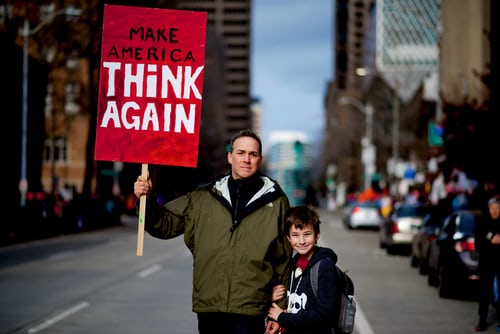
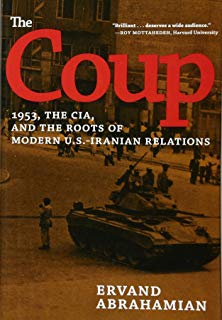
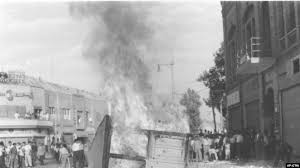
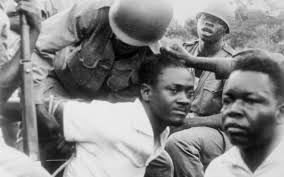
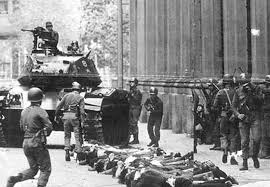
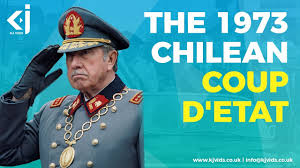
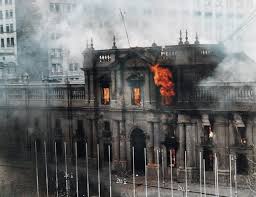
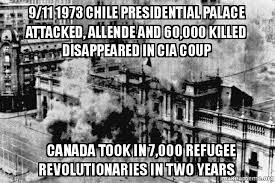

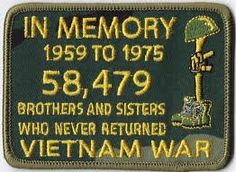
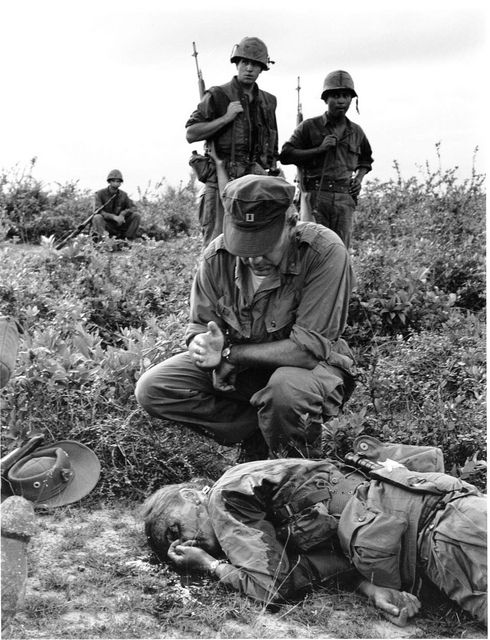
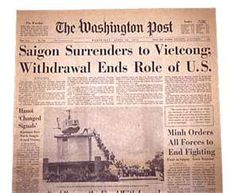
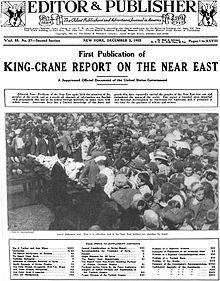
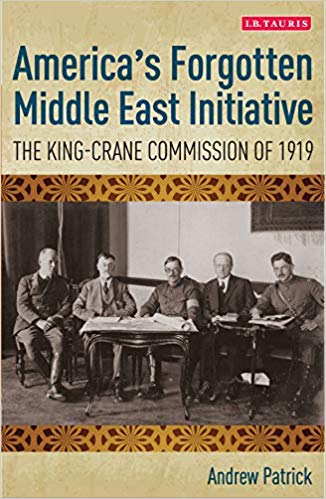
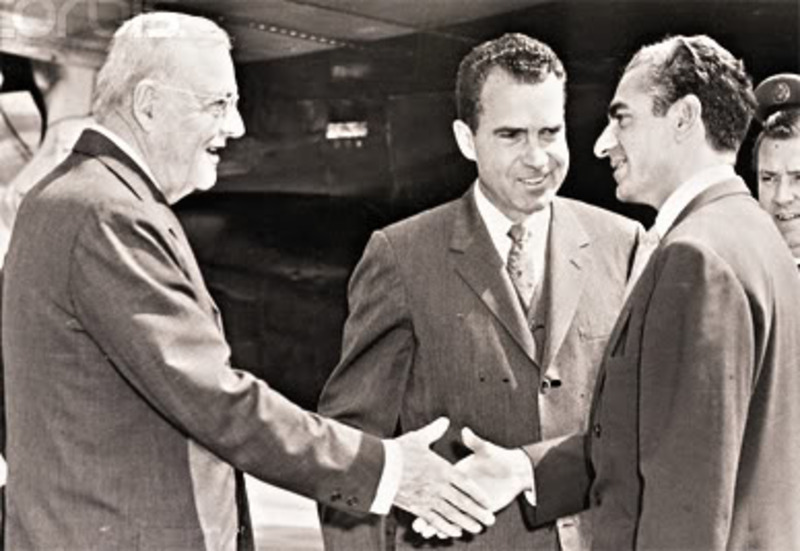

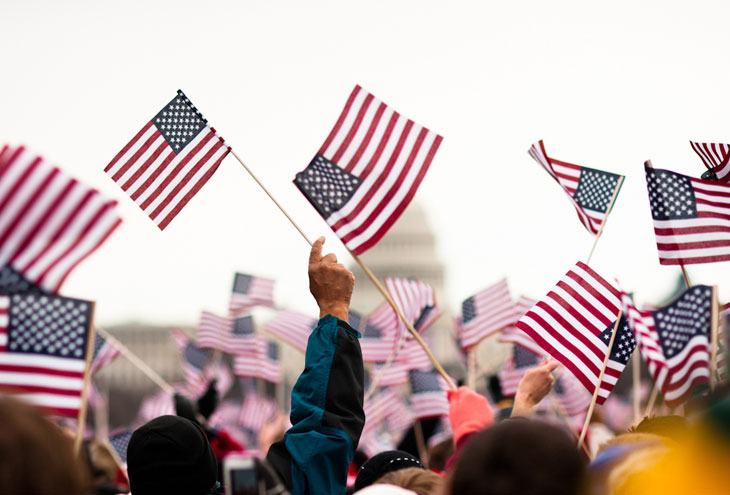

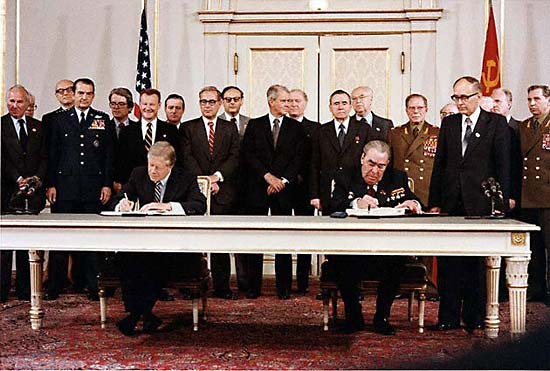
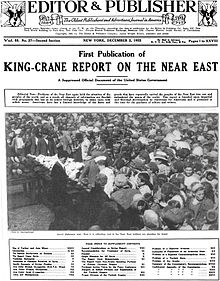
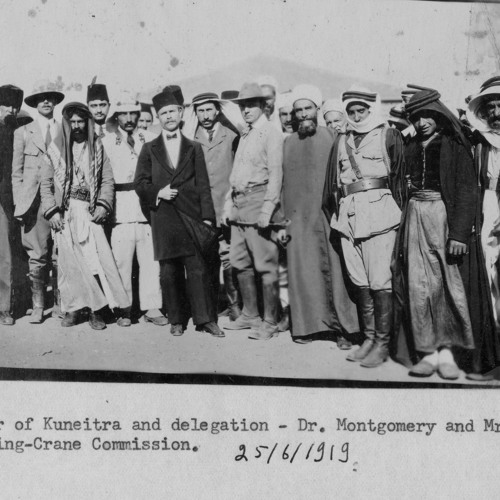


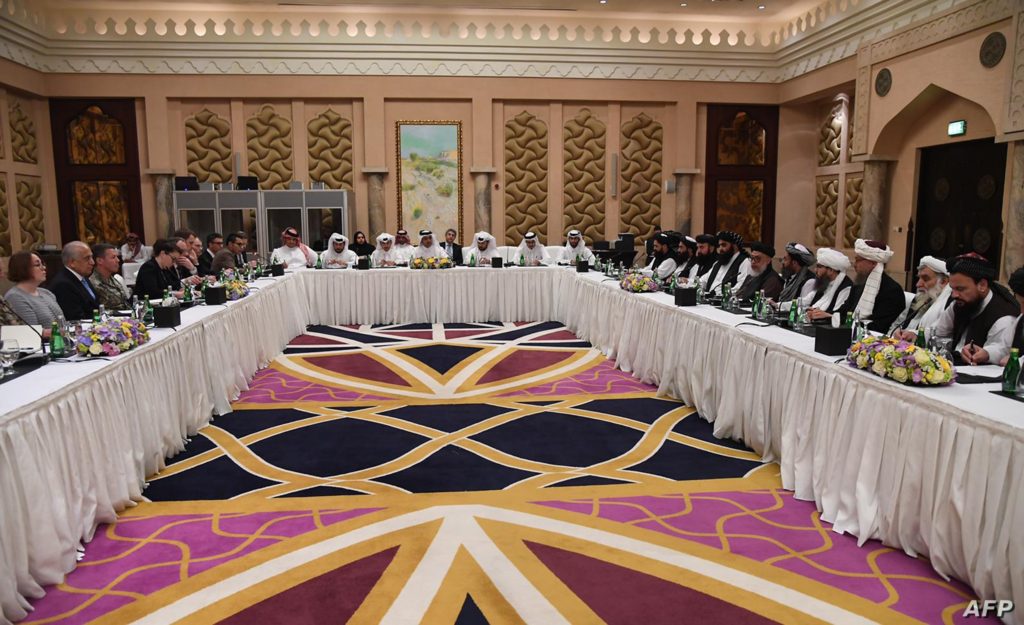
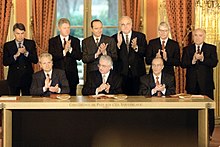
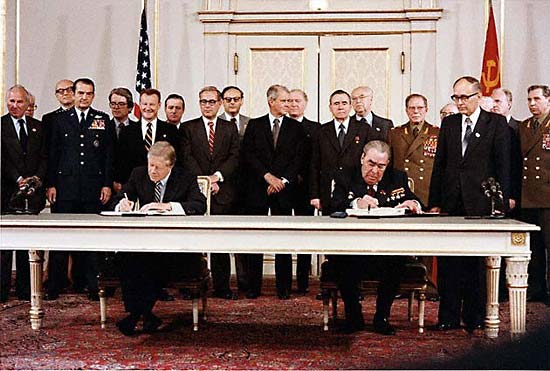
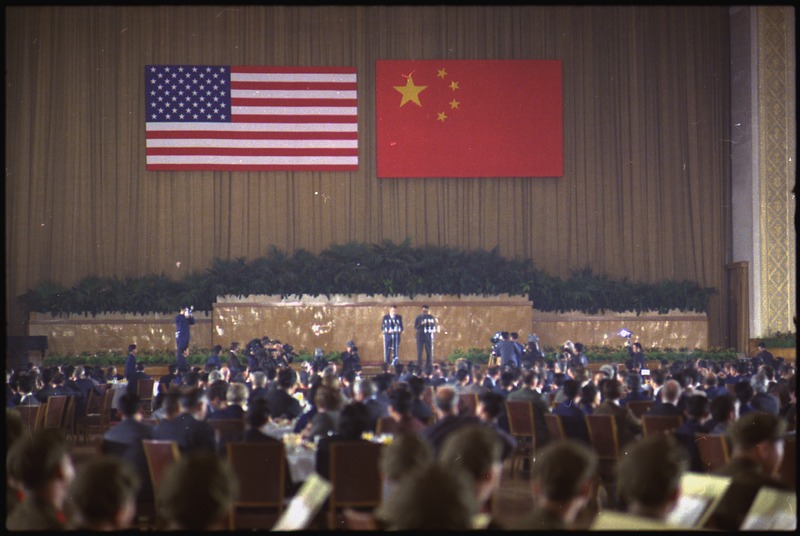
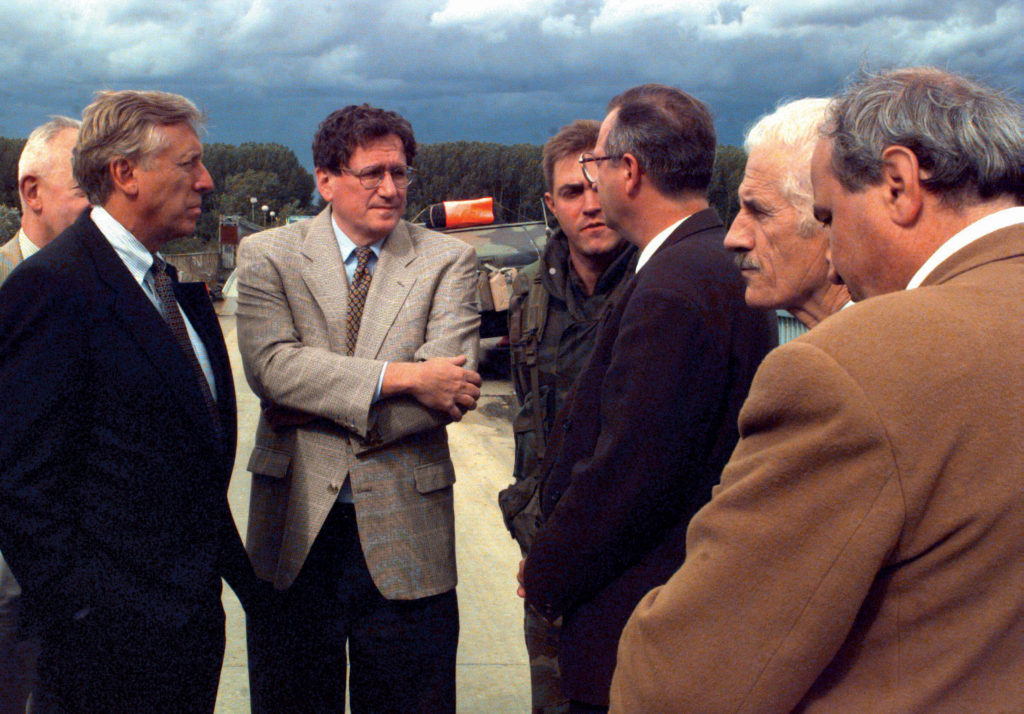
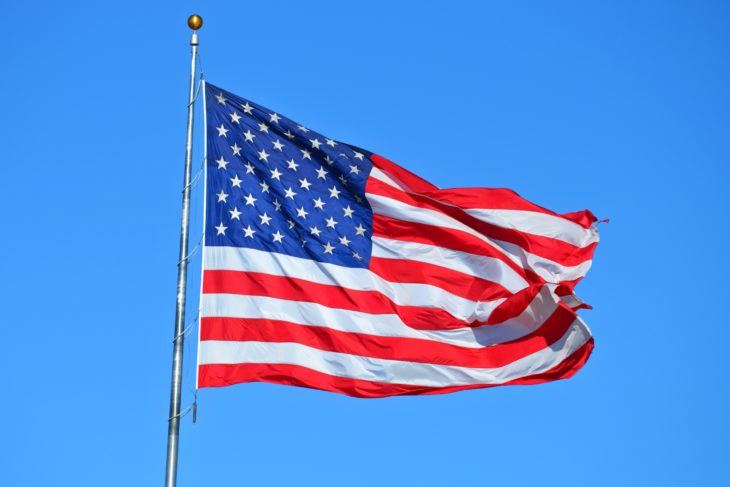

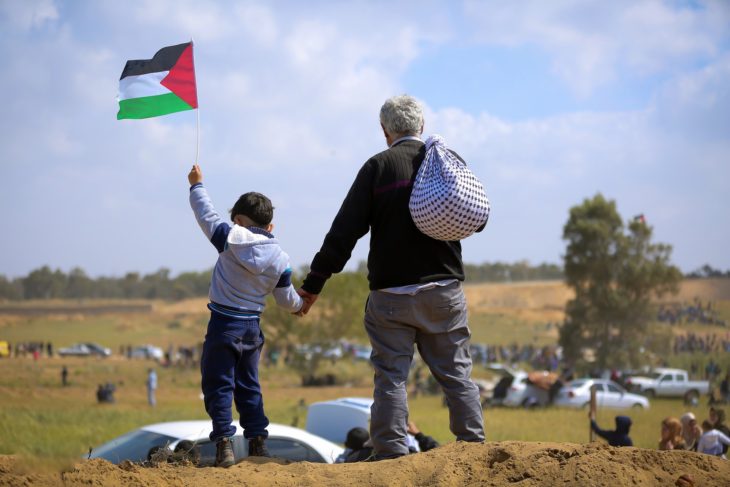

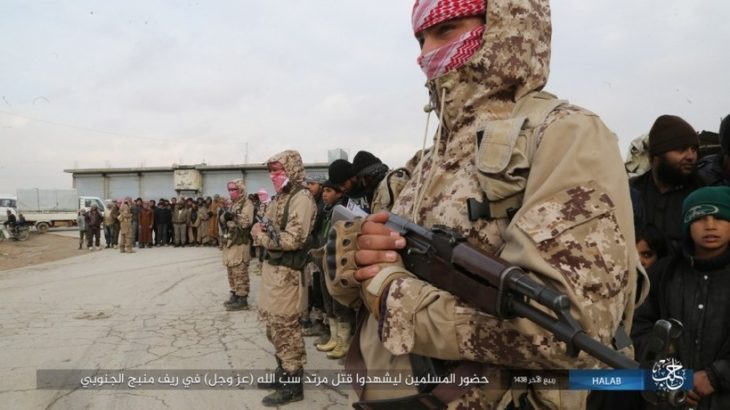
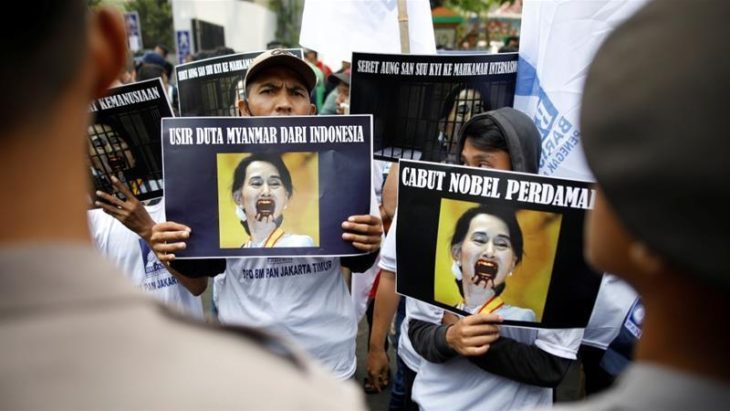
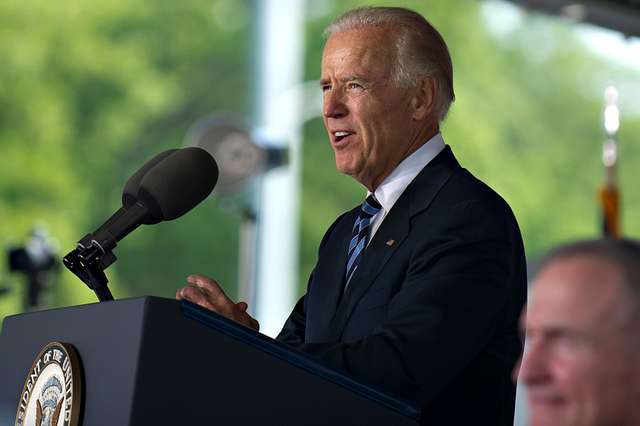
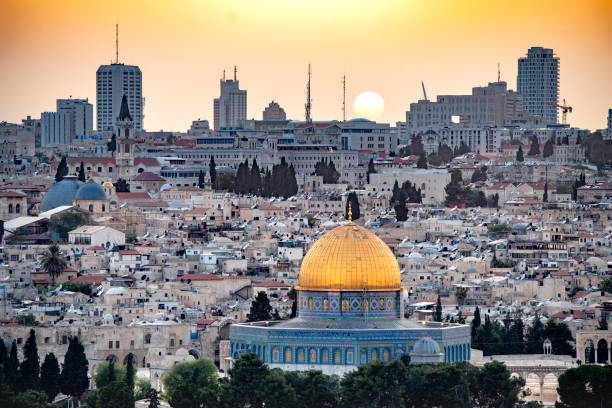
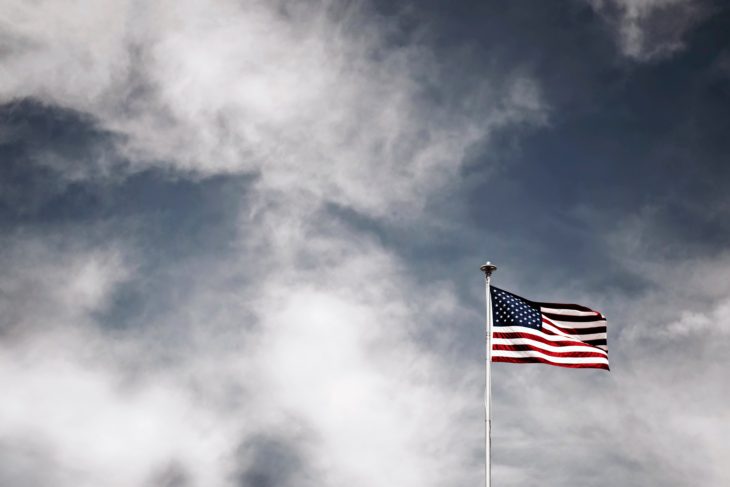
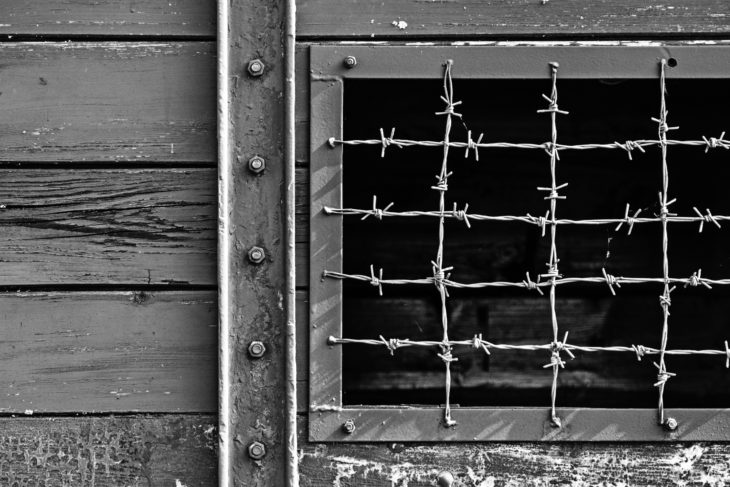
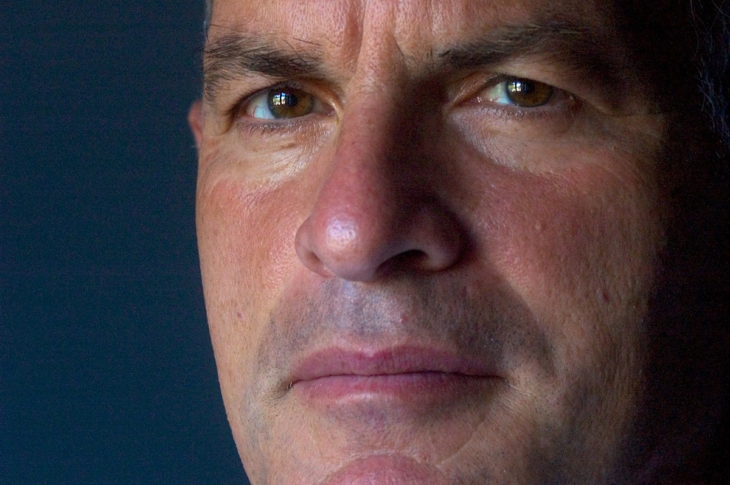


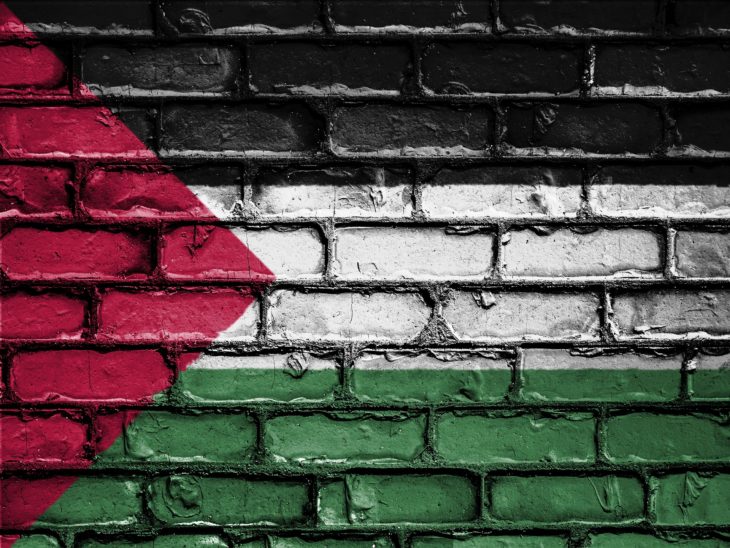
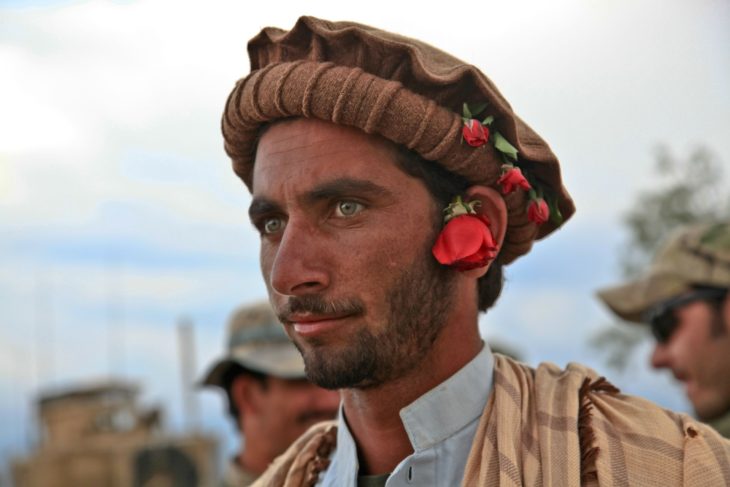
Recent Comments